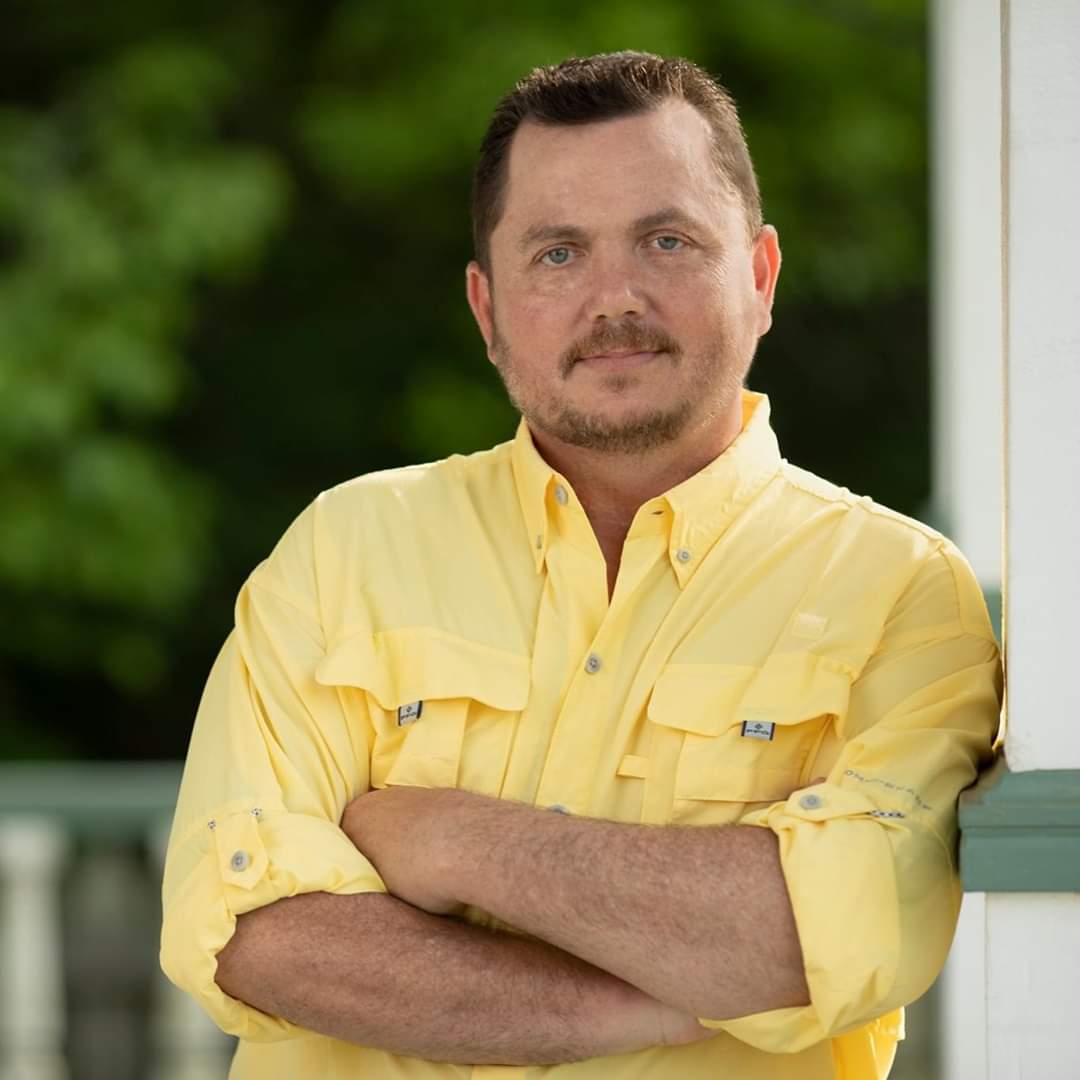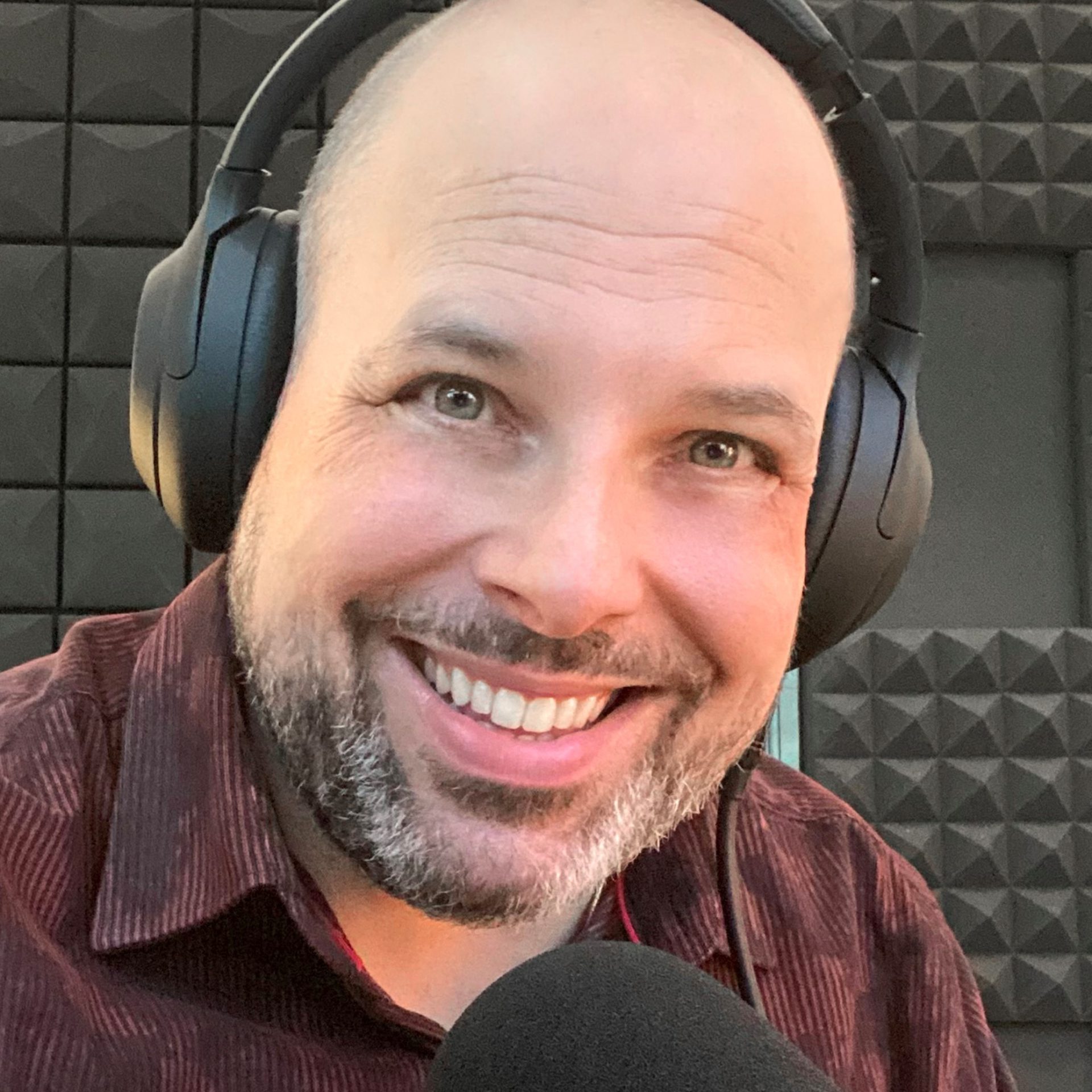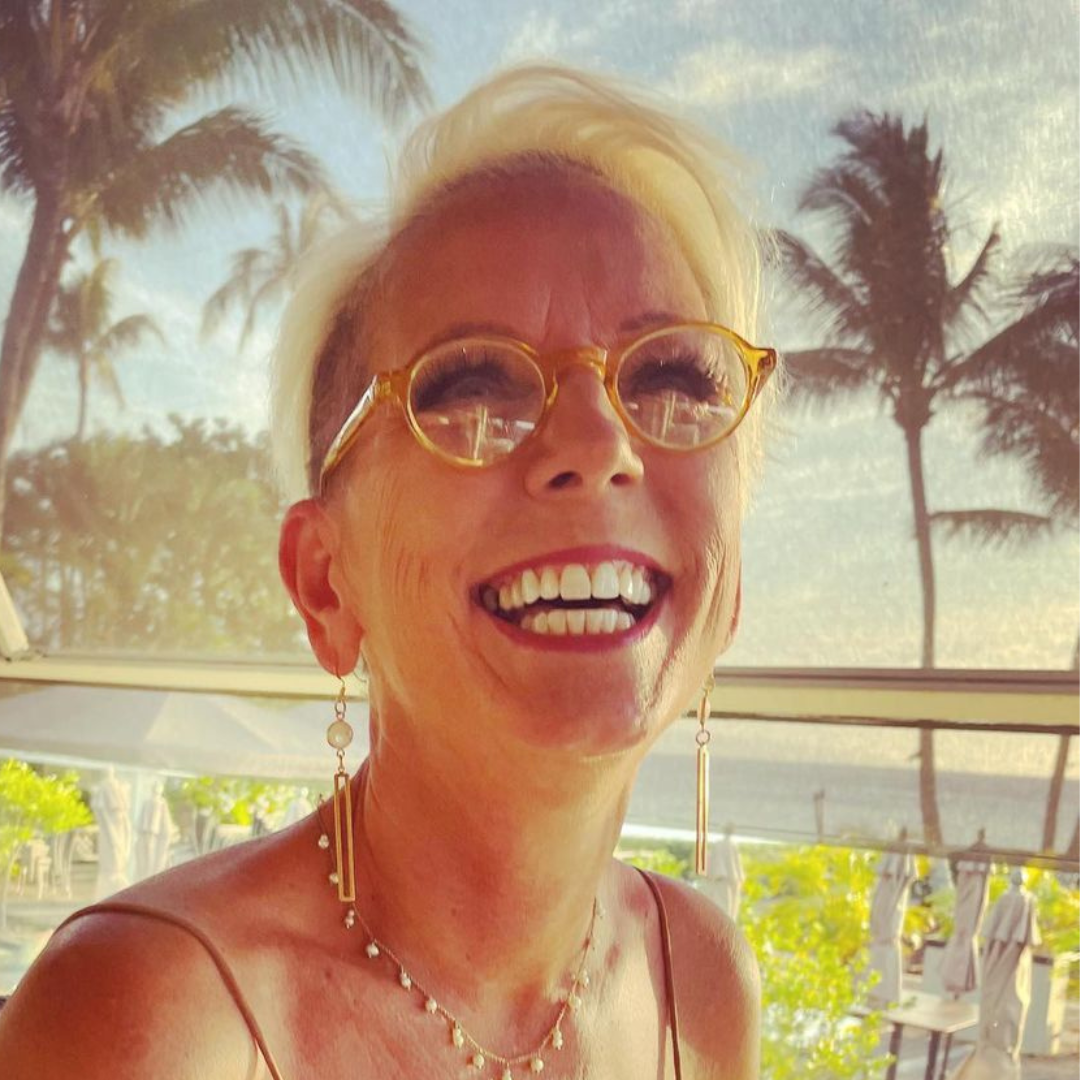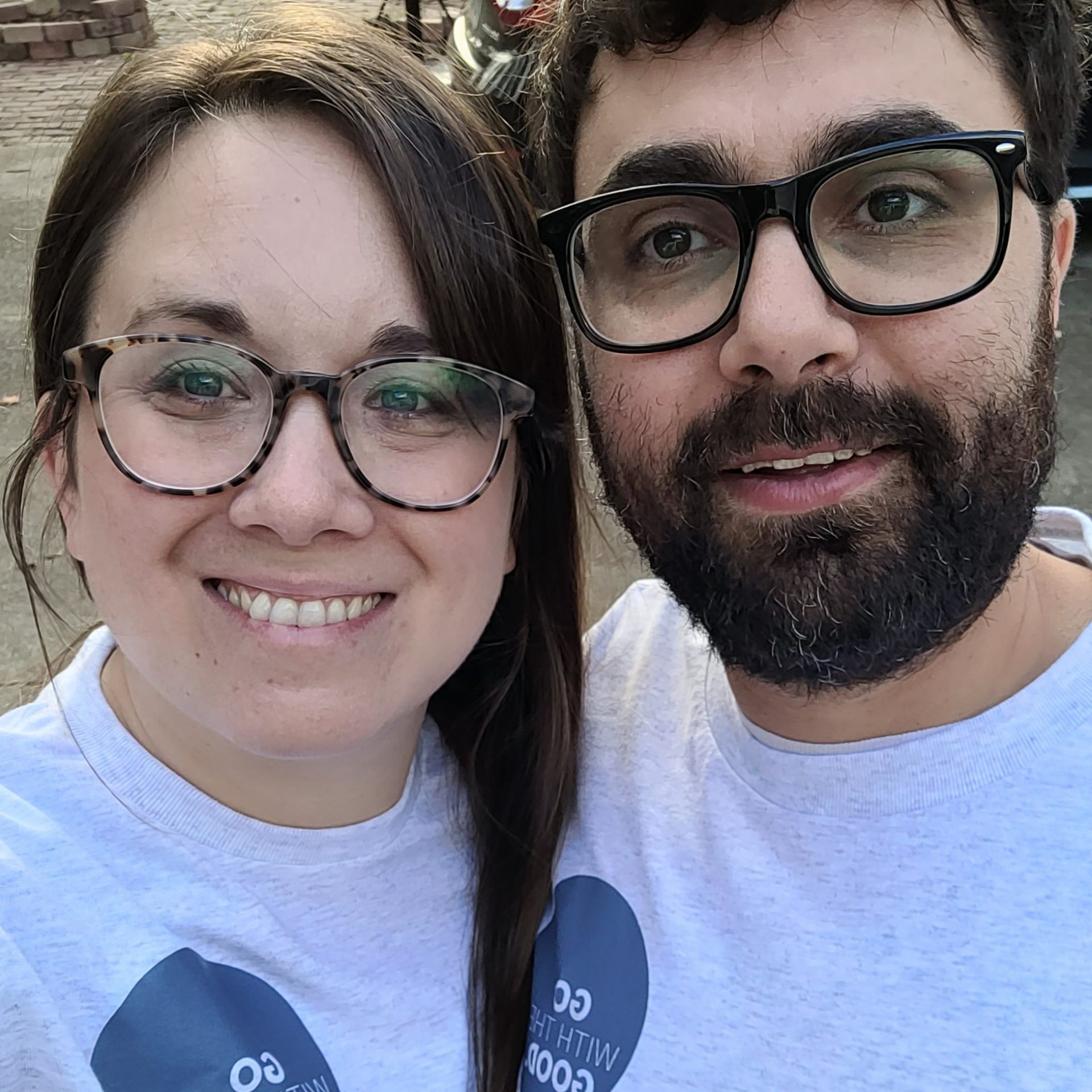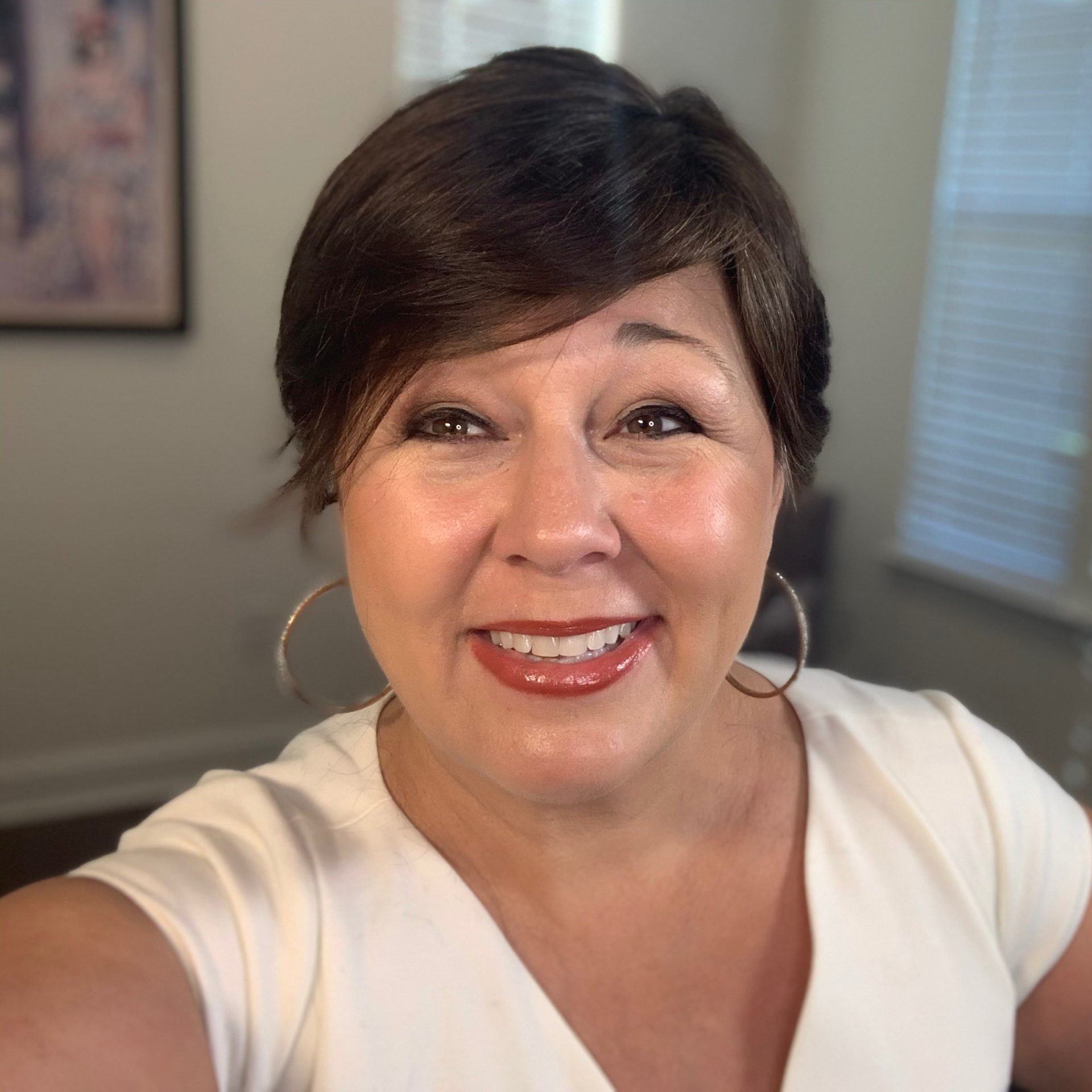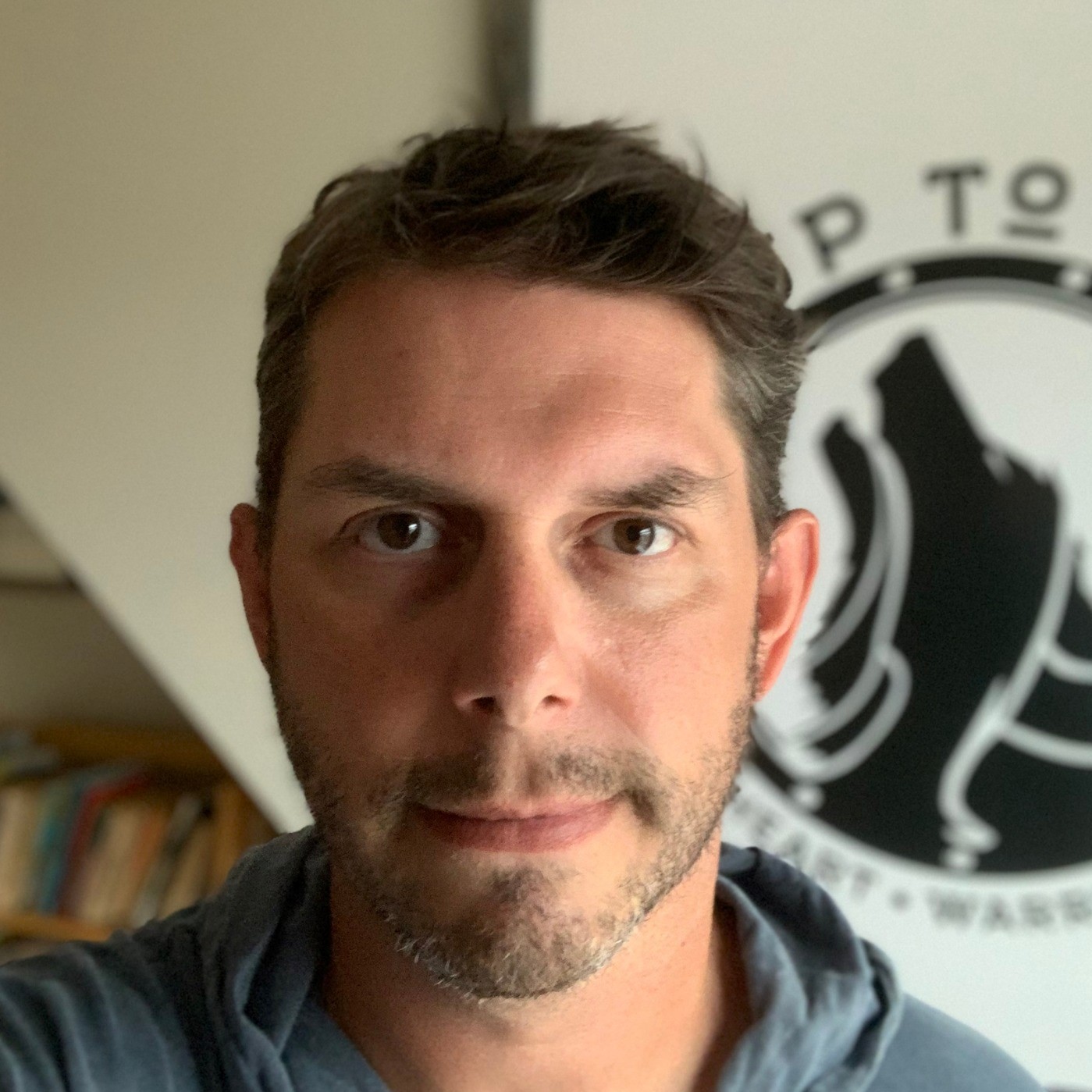Becoming a Better Person | Cancer Friends
Featuring Alan Stephenson
The Patient Story’s new series “Cancer Friends” features Andrew and Esther Schorr. They co-founded PatientPower.info, a resource for other cancer patients and caregivers to help them through their diagnosis and treatment.
This segment focuses on Alan Stephenson, who was diagnosed with multiple myeloma in 2016. Alan had never heard of this rare cancer, and he didn’t know the long journey ahead of him when he went to University of Arkansas Medical Sciences (UAMS) for treatment. Through this experience, he believes he became a better person, a better husband and a better father.
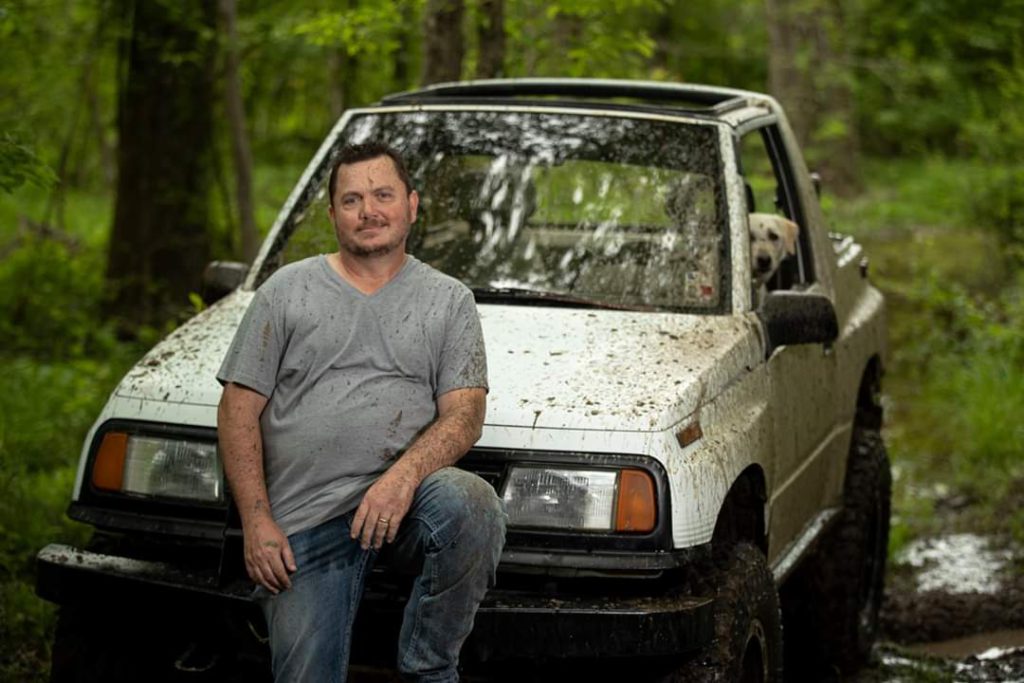
This interview has been edited for clarity. This is not medical advice. Please consult with your healthcare provider for treatment decisions.
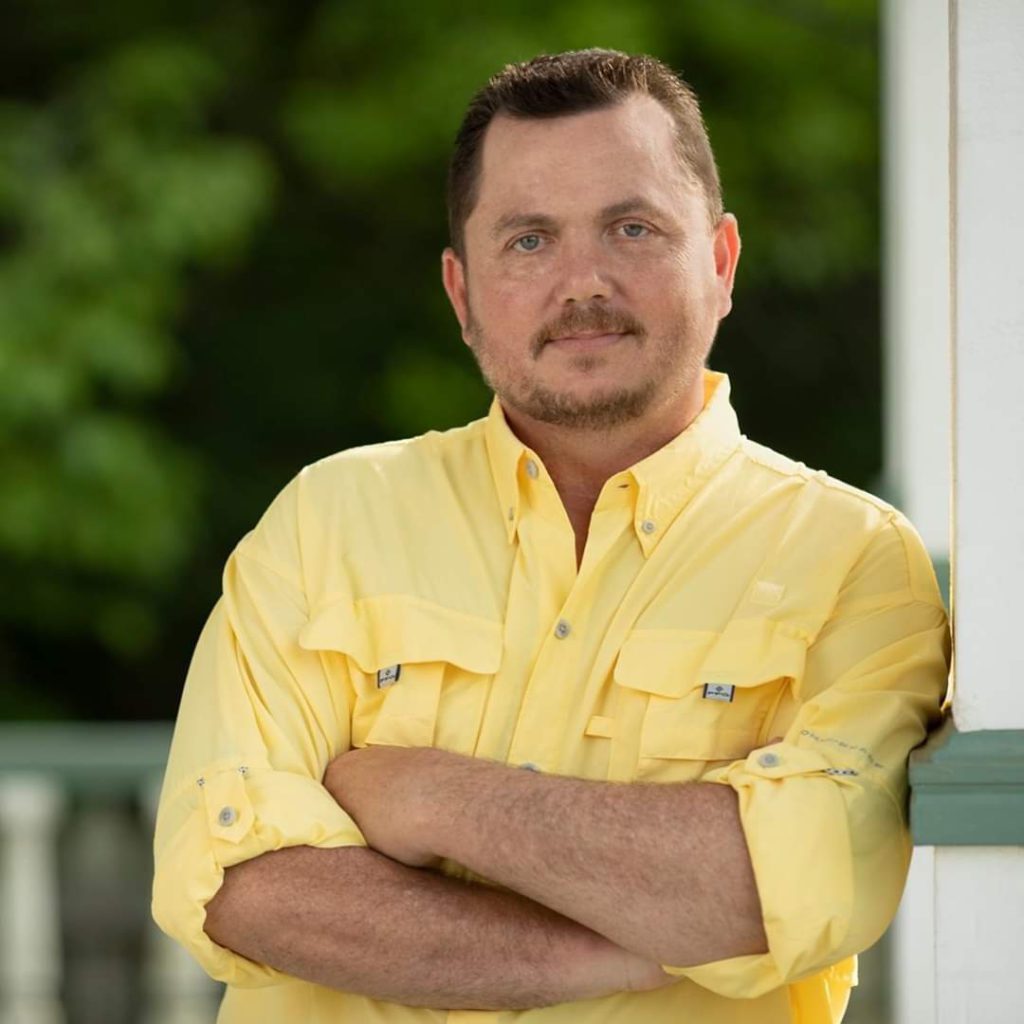
At the end of the day, I wouldn’t change any of this, as hard as it’s been. Some days it’s easier to say that than others, but I wouldn’t change it. In many ways, [it’s] one of the best things that ever happened to me.
Alan Stephenson
Introduction
Andrew Schorr, The Patient Story: Hello and welcome to Cancer Friends. I’m Andrew Schorr. Joining me is a new friend from Monroe, Louisiana, in northeastern Louisiana, and that’s Alan Stephenson. Alan, welcome.
Alan: Thank you for having me.
Andrew, TPS: Alan, let me tell the folks a little bit about you. As I understand, you’ve been in the investment business for years. You’re a financial planner and have been investing in stocks since you were a kid. You’re a businessman and active in your community.
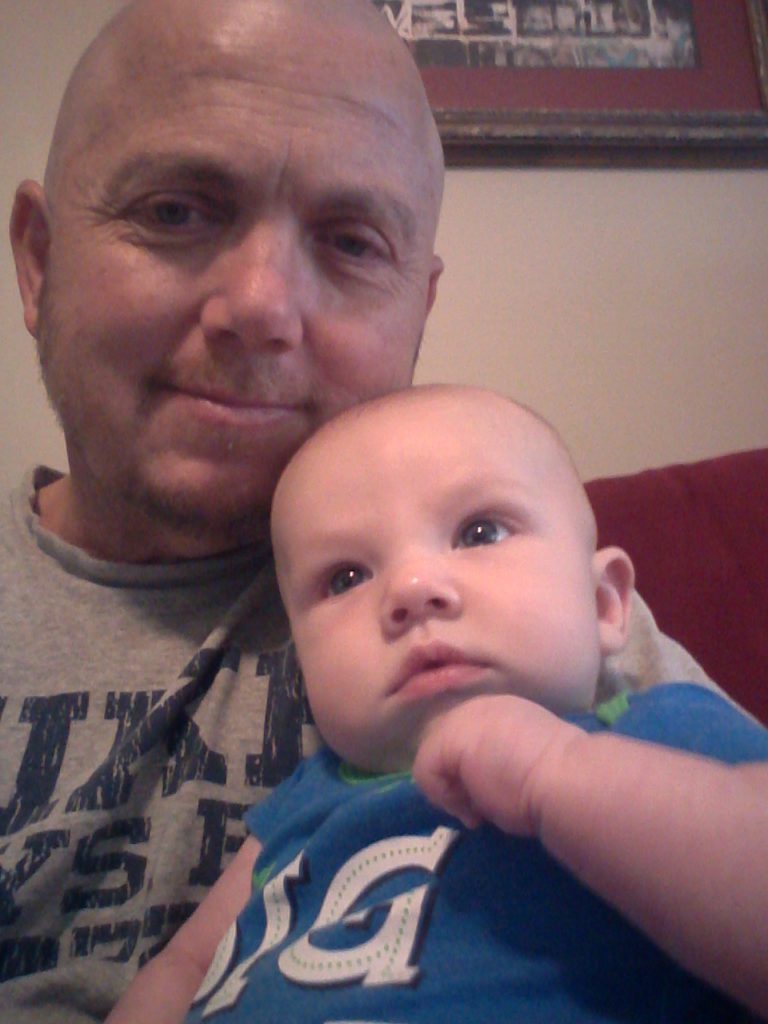
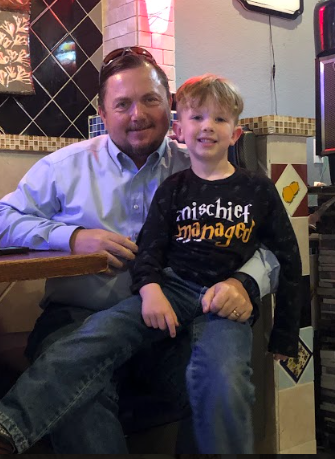
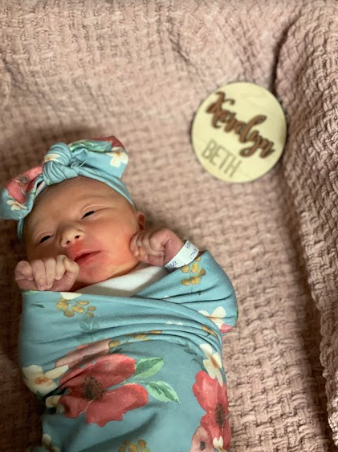
[You have] 3 children, 2 grandchildren, and [your wife] Miriam of more than 30 years. But cancer intervened in your life. But before cancer, were you a pretty healthy guy, a pretty active guy?
Alan: Oh, yeah. Very active. Hunting, fishing, shooting archery tournaments, scuba diving, spearfishing. Just very active. I like being outdoors.
Andrew, TPS: How would you describe your personality, growing up and being in business? Were you an easygoing guy?
Alan: I would say in some ways, yes. For the most part, type A, fairly aggressive personality, very driven. I think most people would say I was a really nice guy and fairly generous, but a little bit of a light-switch-type personality, I guess you would say.
Andrew, TPS: Temperamental sometimes?
Alan: Sometimes. When I was young, I had a very bad temper. The good Lord’s been working on me over the years.
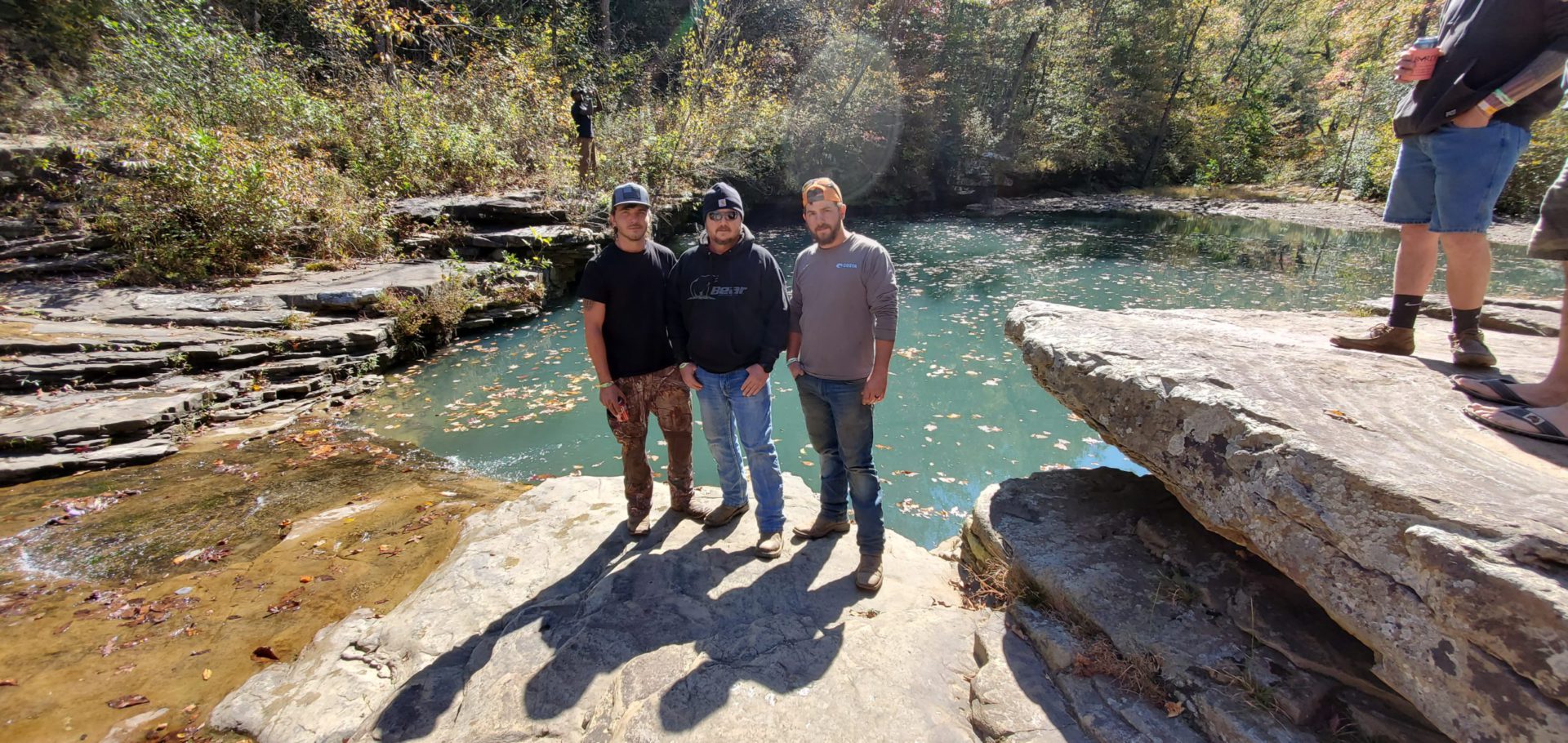
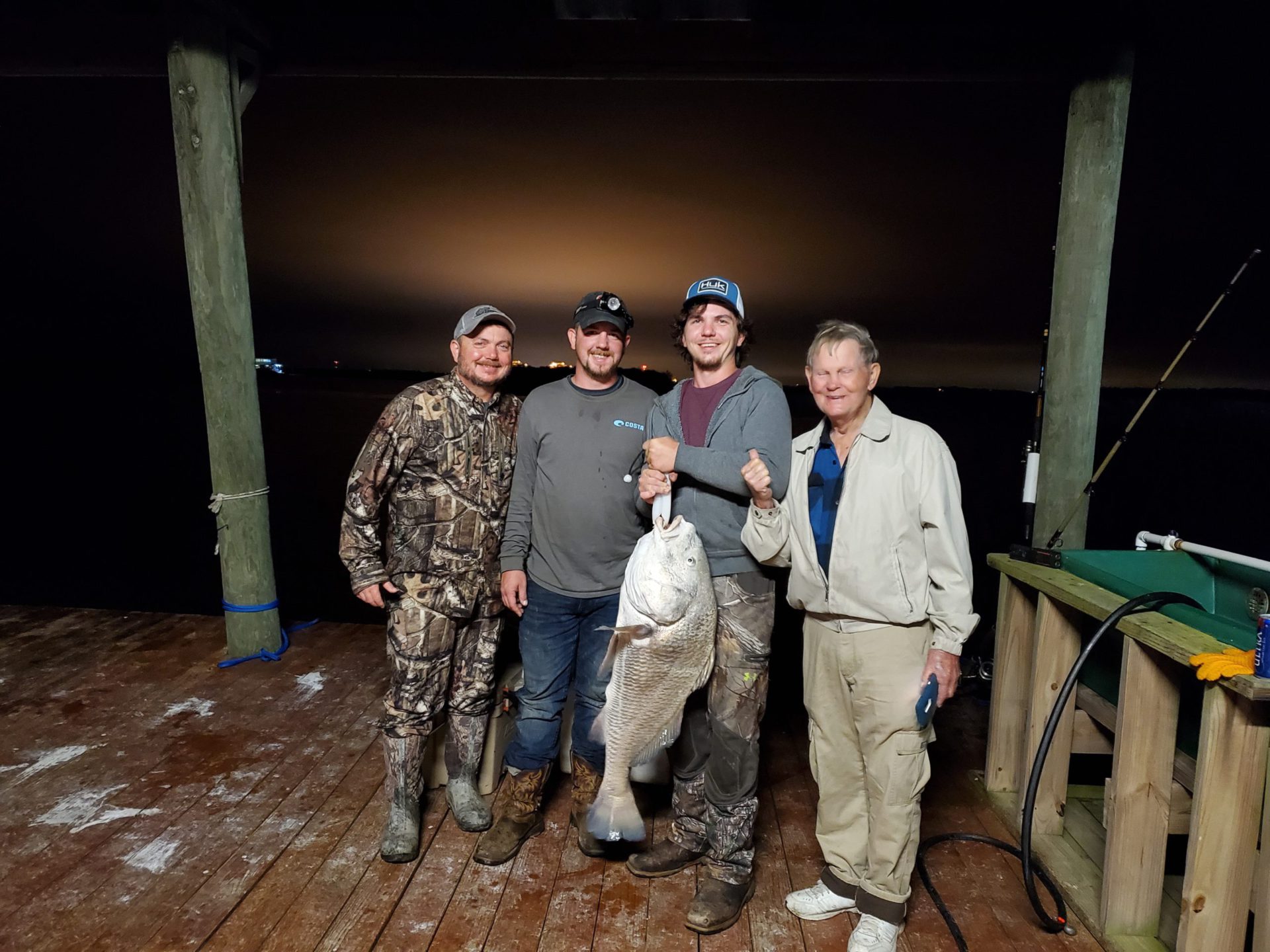
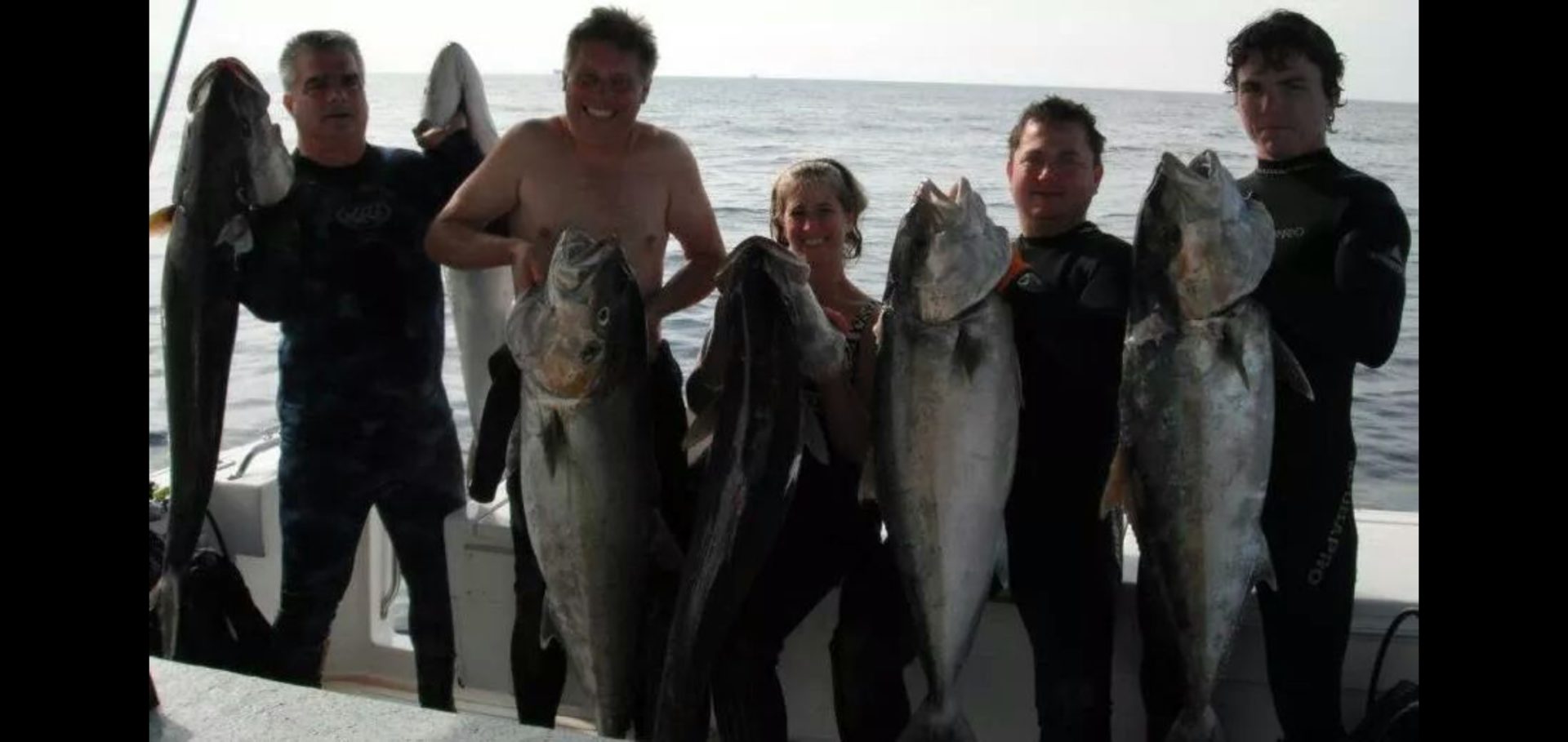
1st symptoms
Andrew, TPS: In 2015, you sneezed. That’s not a big deal, but what happened to you?
Alan: It was a big deal for me. I was standing in my kitchen and watching television while I was grabbing a bite to eat. I sneezed, and it put me on the floor. It injured my back, and I was pretty sure I had fractured some ribs. I’ve had fractured ribs before. I’ve been kind of hard on my body over the years. I could hardly breathe. It hurt so bad.
Andrew, TPS: You were having other back problems, and you were telling your wife you’re probably a candidate for back surgery, right?
Alan: Right. Back problems were not really new to me because I grew up being pretty hard on my body. When I was young, I thought I was 9 feet tall and bulletproof. I grew up riding motocross bikes and survived a lot of things I probably shouldn’t have. It took a toll on my body. Even though I was very healthy, I’d had a lot of old injuries, and I just thought it was old injuries coming back to haunt me. I told her in late 2015 that I just couldn’t keep living like I was, because I was in so much pain.
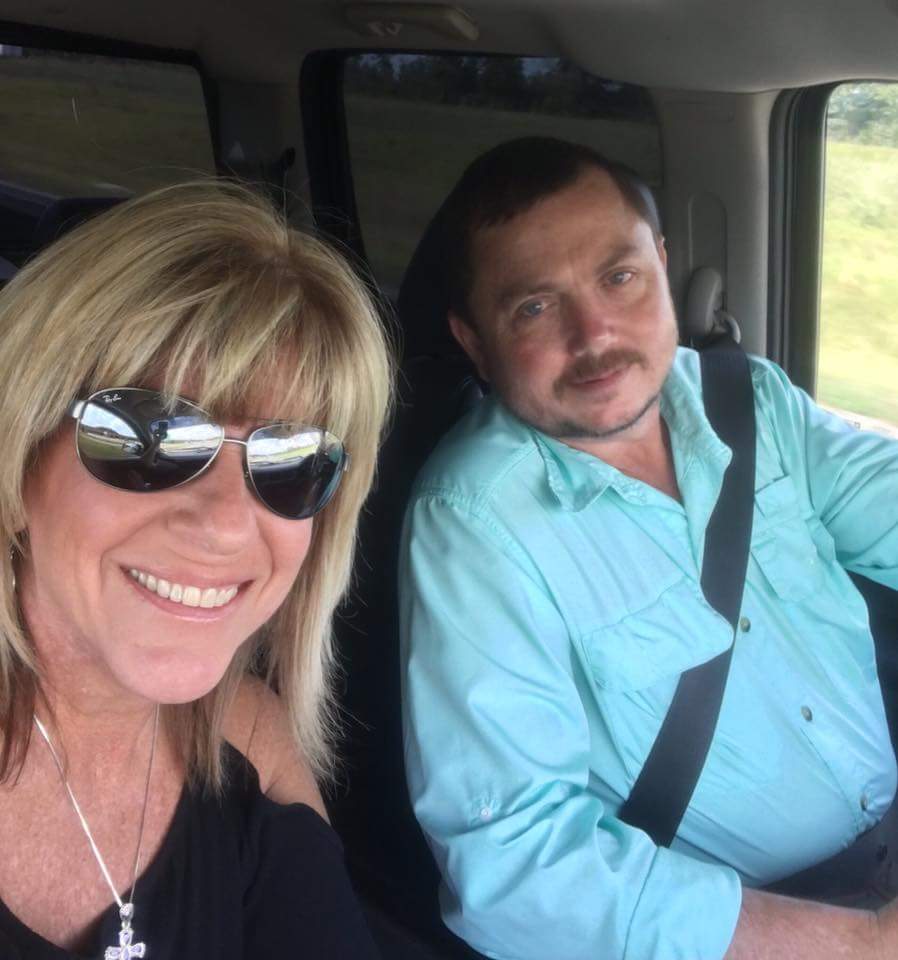
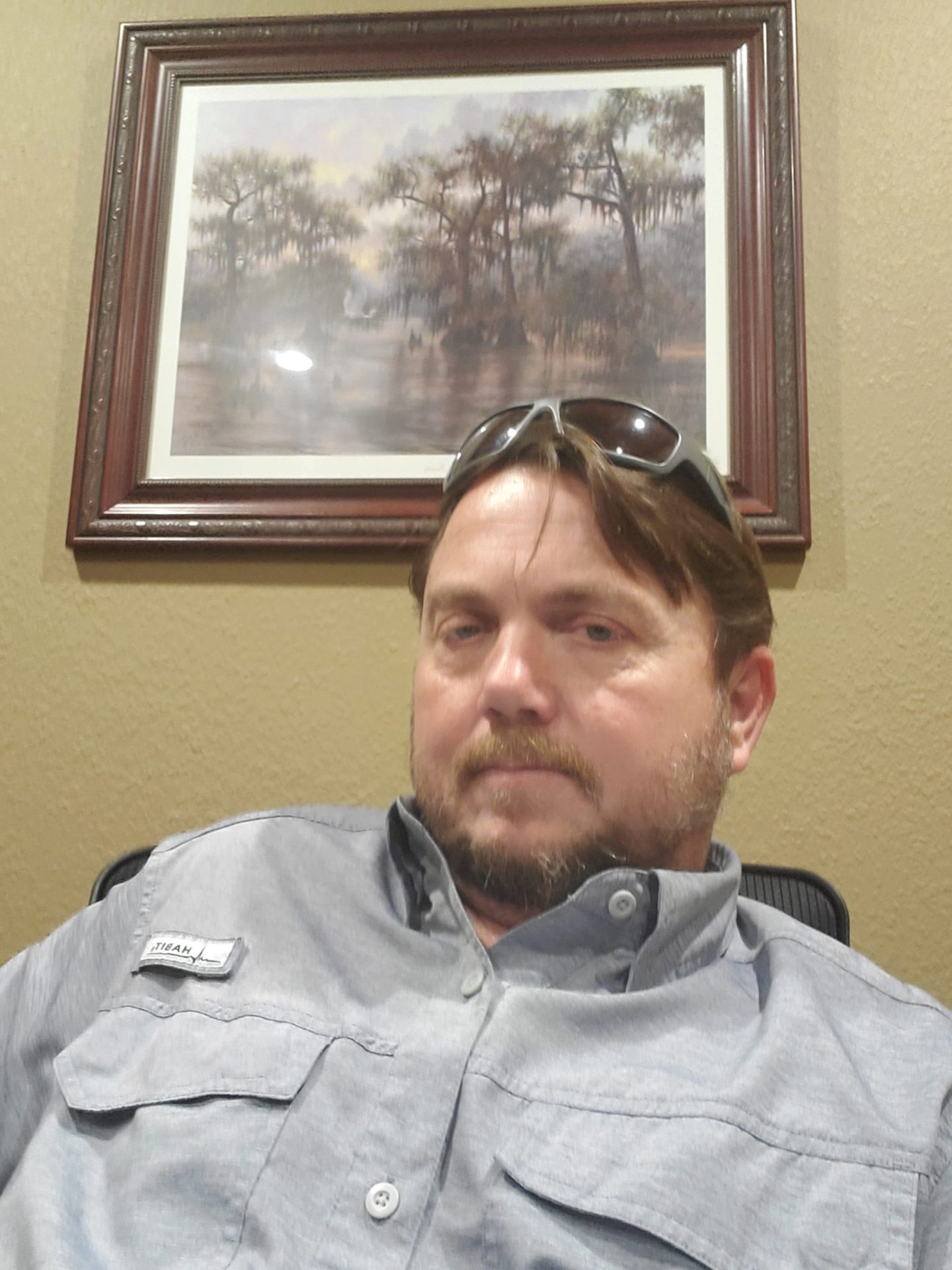
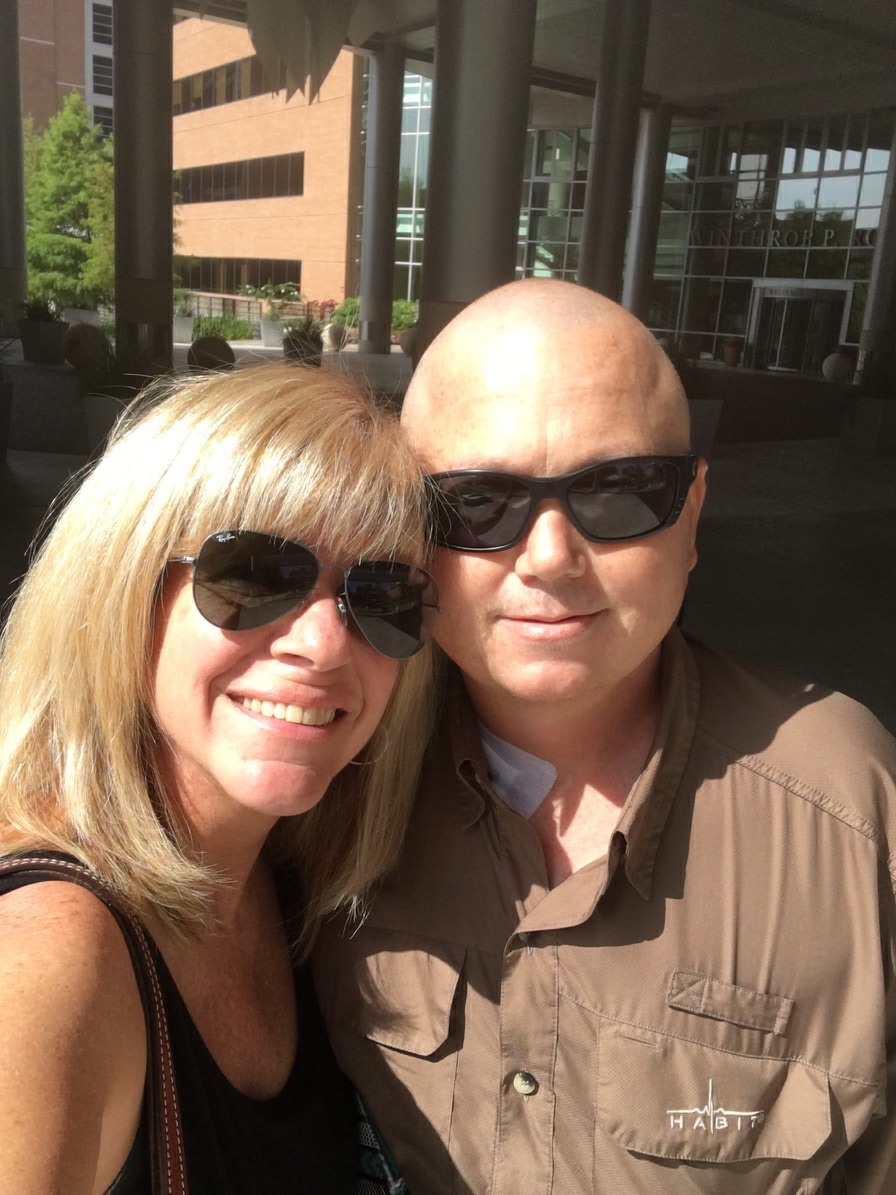
Andrew, TPS: But it wasn’t only the pain. You were having chest congestion, and you were sick.
Alan: For the most part, I just didn’t have any energy. I thought that was because of the pain I was in, just wearing me down. I do have a very high pain tolerance. I didn’t go to the doctor. I was kind of raised where you don’t go to the doctor unless the bone’s showing.
Even after I sneezed and injured myself, I didn’t go to the doctor. I kept getting sick with chest congestion and fever. [It] seemed like every 2 or 3 months, I would get really sick and I’d have a hard time shaking it. I just never put two and two together.
Going to the doctor
Andrew, TPS: How did you eventually get to a doctor? Tell us what happened.
Alan: Well, two and two came together on March 30th of 2016. I was sick once again [with] really bad chest congestion [and a] fever. I was sleeping in our upstairs bedroom so that I didn’t get my wife sick. I got in the shower, and the steam made me start coughing. The pain was indescribable. Every time I coughed, it just seemed like my back was just about to break in half.
I actually got on my hands and knees in the shower right before my L5 vertebra collapsed. For those [who] don’t know, multiple myeloma is a cancer of the blood that makes your bones basically disintegrate and become brittle. That’s why my back broke.
Andrew, TPS: Right, but this is before you even knew you had multiple myeloma or knew anything about this. You went to the local doctor or local hospital, I imagine.
Alan: I was at home alone. I have been blessed, like I said, with a pretty high pain tolerance, so I was able to turn the water off. Eventually, I was able to stand up and dry off. I got dressed and had to crawl down my stairs. I went and drove myself.
I drive a 4-wheel-drive truck that’s fairly high off the ground, and I had to drag myself into the truck. I went to work, so my assistant had to come outside and help me out of my truck. I couldn’t get out, and I was walking like I’d had a stroke. I couldn’t pick my feet up. I was having to shuffle them across the ground.
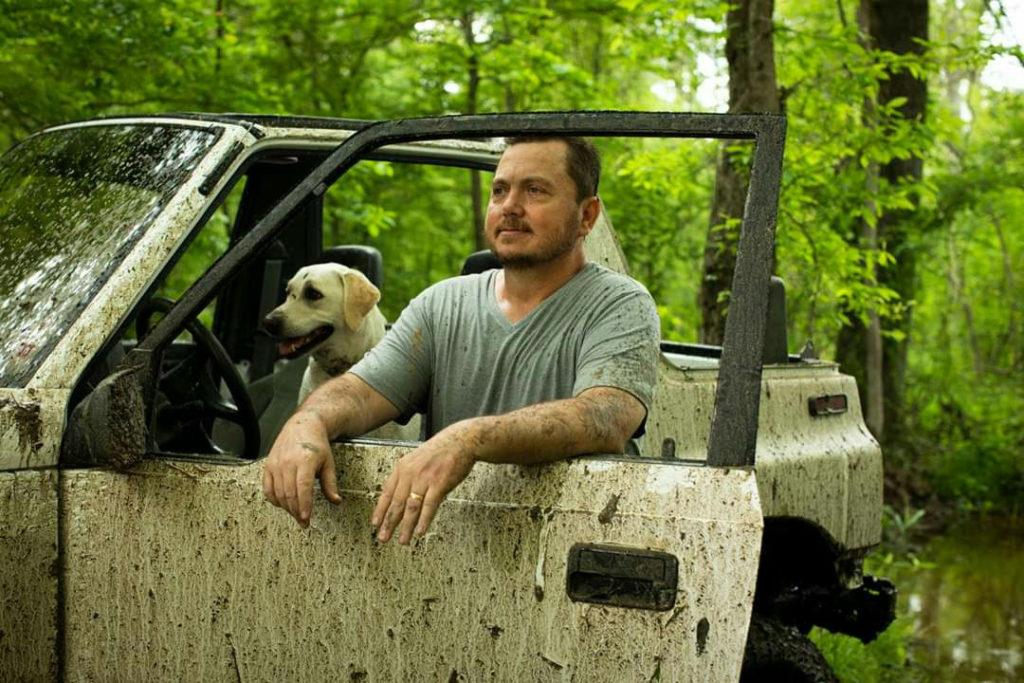
I stayed at work that day, and that night I spent most of the night in tears. The next day I went to see my primary care doctor, and he wanted me to go to the emergency room. I wouldn’t go. I basically walked around for a week and a half on a collapsed vertebra, waiting to get [the MRI] done and get the results.
Results and diagnosis
Andrew, TPS: The results come. What happened?
Alan: They did the MRI on a Friday. It was funny because as I was walking out of the doctor’s office — he’s a buddy of mine — I asked him, “What are the chances you think I have bone cancer?”
He just looked at me funny. He said, “You know, I wasn’t even thinking that way until you said that.” Anyway, they did the test on a Friday. He called me on Monday morning, and he said, “You were right. It’s cancer, and it’s bad. I’ve got you a room reserved. You need to be there either today or in the morning at the latest.”
»MORE: Patients share how they processed a cancer diagnosis
I said, “All right, I’ll be there in the morning. I’ve got some work I’ve got to finish up.” Anyway, they put me in my local hospital, and that’s when the adventure started.
Andrew, TPS: Let’s carry on from there. Clearly, what you described, you were a type A guy, for sure. Driven by work. Typical man. Not all men are this way, but trying to ignore the pain, push forward, not wanting to go to the doctor until maybe the very 11th hour. Now you’re in the local hospital. They tell you they think it’s this cancer, multiple myeloma. Do they tell you that?
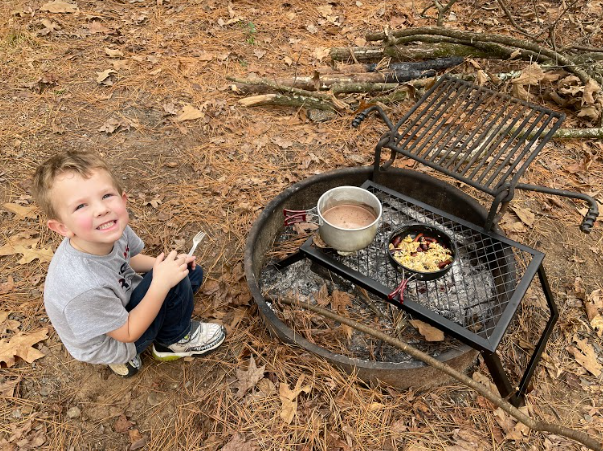
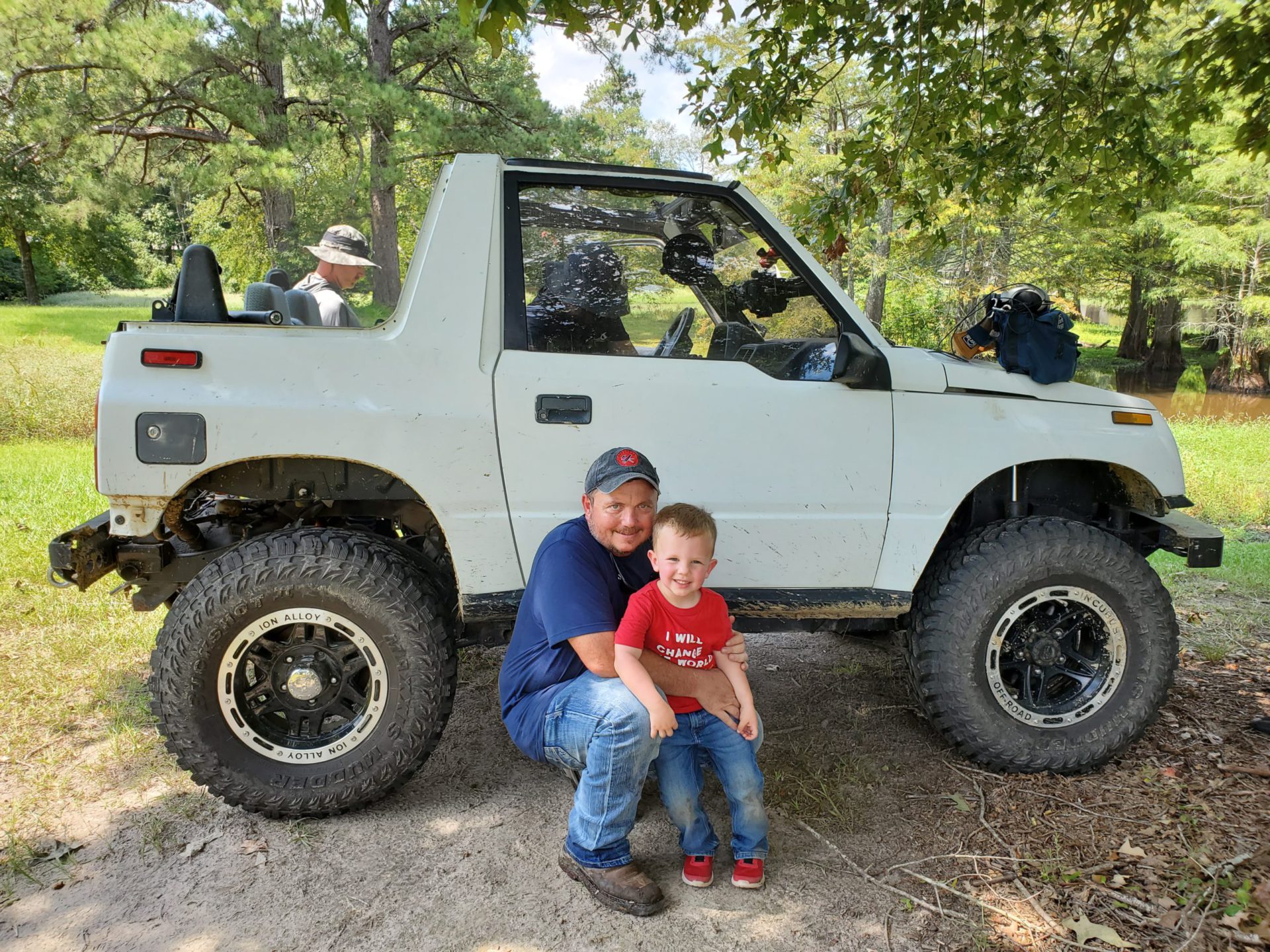
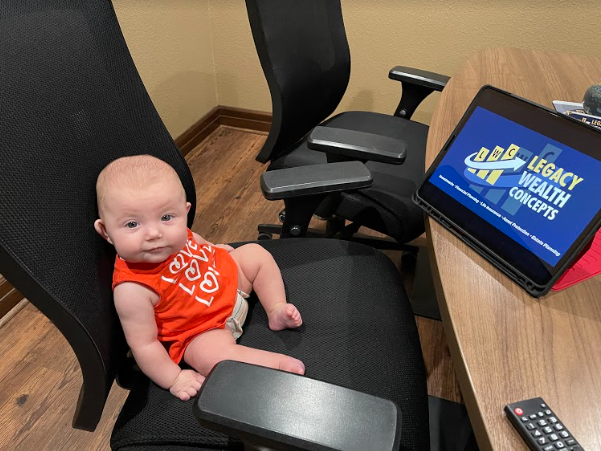
Alan: Yes. But I had a bad reaction to some pain meds when they first put me in the hospital. I woke up the next day running a fever of 103, with the room spinning and nauseous, and I was shaking like I was having seizures.
Basically, the pain meds had shut down my digestive system. I don’t really remember much of those first few days, but during that time, they were able to do a bone marrow biopsy. They told my wife that it looked like it was multiple myeloma and they wanted me to go to UAMS.
How did you feel seeking treatment for an unfamiliar illness?
Andrew, TPS: Let’s talk about that, too. First of all, I would think you hadn’t heard of multiple myeloma. It’s not uncommon, but it’s not common. It’s often in people older than you. How old were you?
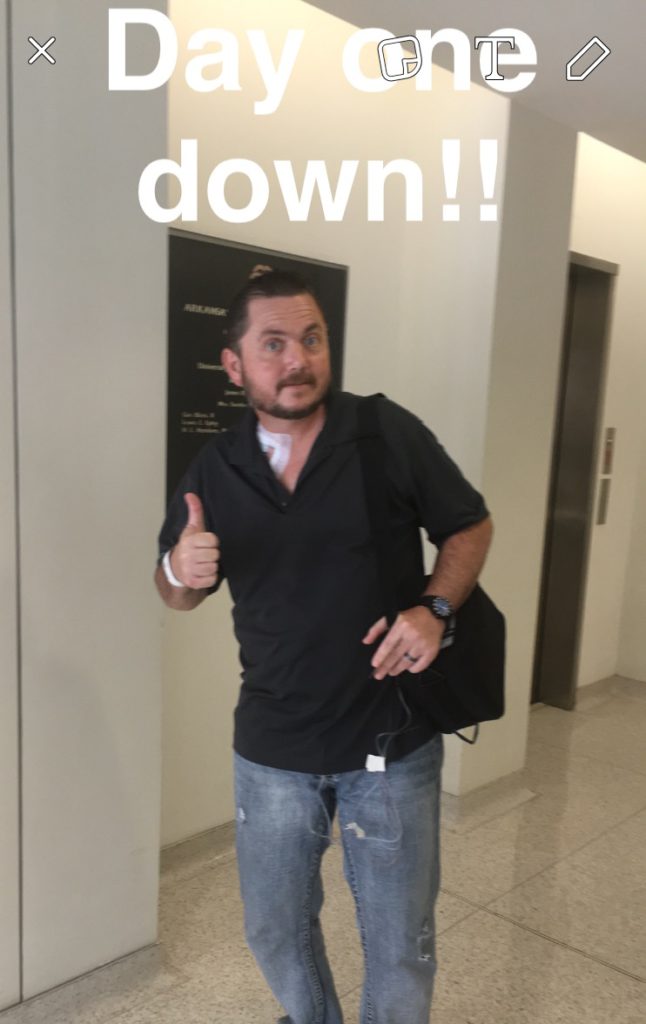
Alan: I was almost 49.
Andrew, TPS: You would have been a younger myeloma patient, probably not familiar with it. They tell you that you need to go to a special center for it — not in Louisiana, but in Little Rock, Arkansas. How did you feel about that? You had to go somewhere to deal with this illness that you’d probably never heard of.
Alan: You’re right. I had never heard of it. Like I said, I don’t really remember a lot about those first few days, but I remember they said, “Don’t Google it.” For once in my life, I actually did what I was told, and I didn’t Google it. My wife did, so she knew how serious things were.
Because I hadn’t heard of multiple myeloma, I was thinking, “Oh, that’s just a junior league cancer. It’s not pancreatic cancer. It’s not brain cancer. I’ll be all right.” As far as going out of state, the fear of the unknown is probably as bad as anything else.
I went in the hospital on a Tuesday, and of course, on Wednesday I woke up sick and couldn’t eat. They had to do a vertebroplasty to rebuild my L5 vertebra. That’s where they go in and inject cement and rebuild the vertebra. They were just trying to do that just to get me to Little Rock.
I didn’t really have a lot of time to think about it during those first few days. I got out of the hospital. I went on Tuesday; I got out on Sunday. I lied to them and told them I could eat. Finally, about Thursday, I got to where I could eat. From Tuesday until Thursday, I’d lost 18 pounds.
UAMS called me on Friday and said, “When can you be here?” I said, “Well, it doesn’t really matter. As soon as possible.” They said, “Be here Monday.” I said okay and hung up the phone. I didn’t ask him, “Am I going to be doing testing? How long am I going to be there? Am I going to start treatments?”
We went to UAMS with absolutely no knowledge of how long we were going to be there or what to expect, and that was terrifying. It really was. I am fortunate that that’s only about a 3.5-hour drive from my house.
Andrew, TPS: People want to feel like they can get expert care close to home. You were in not a rural area, but not a big city area. We should say that UAMS, or University of Arkansas Medical Sciences, is one of the foremost places in the world for the treatment of multiple myeloma. Renowned world experts [are] there. You go there, not knowing if you’ll be there an hour or a month. How long were you there?
Alan: Four days. We check in. We go into the waiting room and sit down. We’re just waiting for them to come out and have that initial meeting with us. This man walks up to us and he says, “Are you new here?”
I said, “Yeah.” He said, “Multiple myeloma?” “Yes, sir.” He said, “Man, you’re in the best place in the world to be treated for multiple myeloma. When I came here 7 years ago, I was in a wheelchair. Everybody thought I was a dead man. Now I’m back working my cattle in Oklahoma, and I’m doing great. I just come here once a year for a checkup.”
I was like, “Oh, congratulations. That’s awesome. I’m so happy for you. Thank you for sharing that.” Then he said, “Yeah, but it took a while, so I just moved my camper here and lived here for 2 years while they treated me.”
I will tell you, at that moment, my world stopped. It hit me that I had no clue what we were in for. He just kept talking. I looked over at my wife and the look on her face just broke my heart.
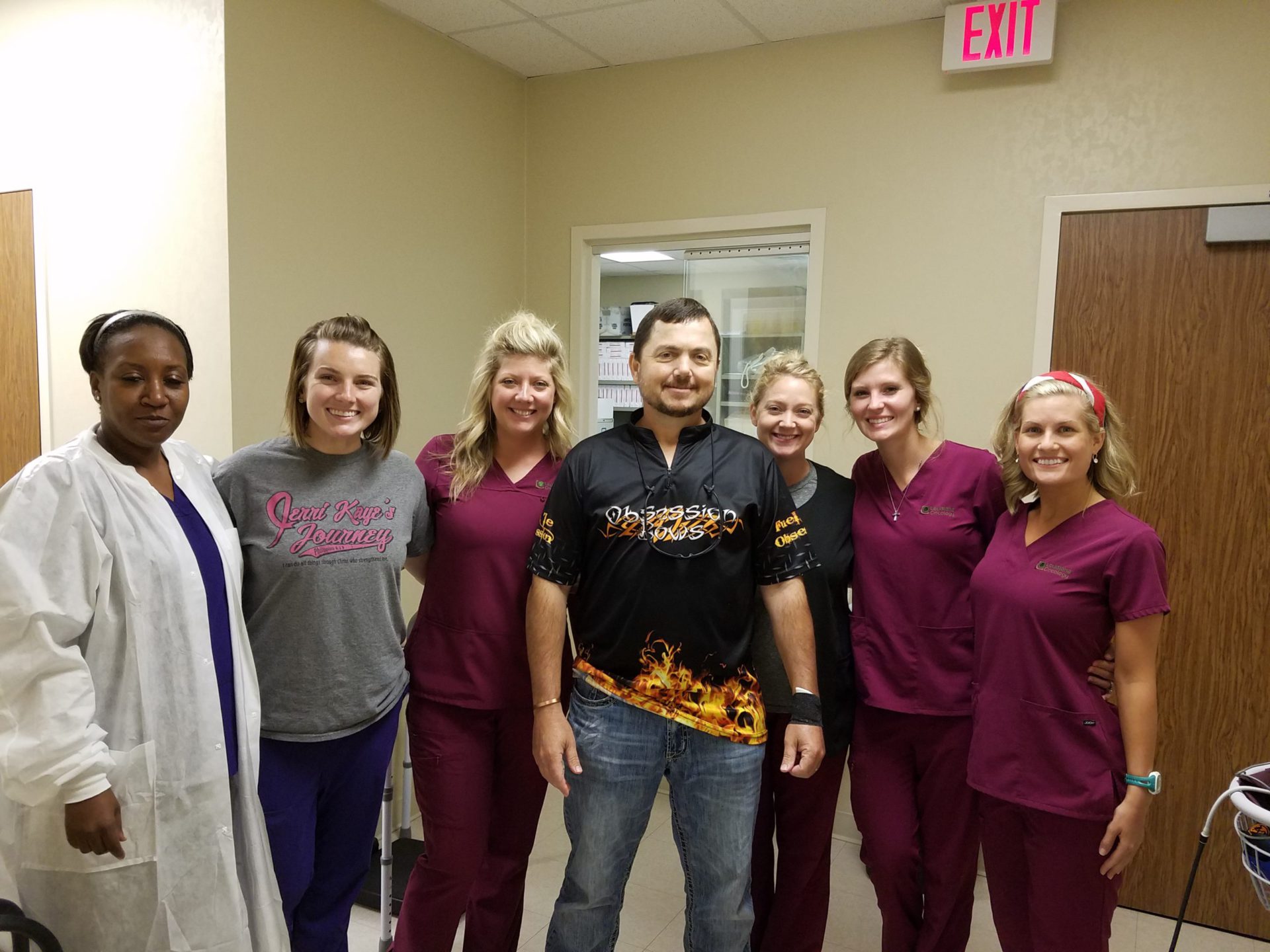
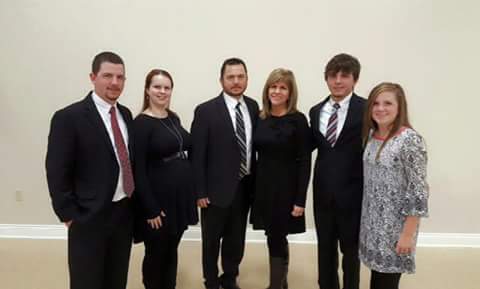
Treatment at UAMS
Andrew, TPS: Alan, you went through a broad range of treatments: two transplants, lots of meds. Over the course of the treatment, how long was that time with University of Arkansas?
Alan: I went through two really hard rounds of chemo. We’d go up for a few days of testing, come home for 2 days or 3 days, and then go back up since it was close to home. I was there for about a month for each of those treatments, with about a month break in between.
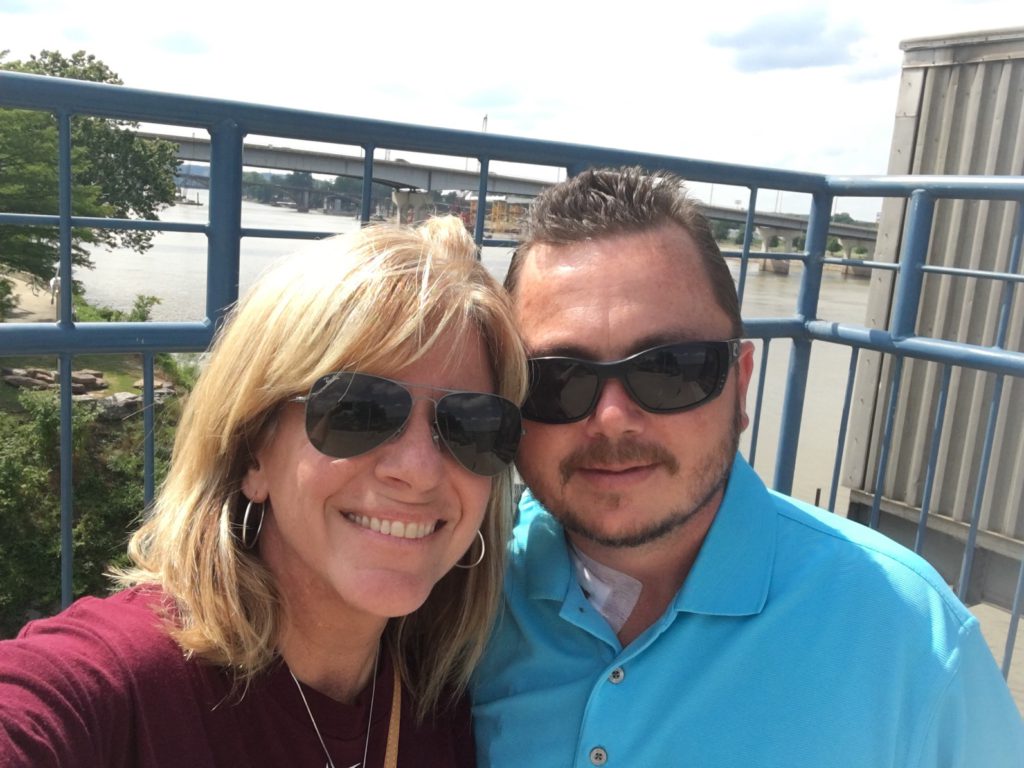
Then I went back and did my first stem cell transplant. [For] the stem cell transplant, I was up there for 3 or 4 weeks, came home for 2 months, went back, did another stem cell transplant and had about a 2-month break. I went back for a checkup. They said I was doing really well, so then they started another treatment.
Basically, it took about a year of being treated up there to get me in remission. Then I started maintenance treatments locally and going back to UAMS every quarter in the beginning for testing, but I was doing treatments locally. I did a total of 4 years of treatments.
Andrew, TPS: Now, as we do this interview, you are in remission, right?
Alan: I am.
Andrew, TPS: I think you still take some maintenance medicine.
Alan: No, actually, the last treatment I had was April of 2020. I do have some medications that I still have to take because my immune system probably won’t ever be quite right. I take some antivirals and things, but that’s really it now.
How did this change you?
Andrew, TPS: Let’s talk about how this changed you. Here’s the guy in the shower enduring tremendous pain. He literally had to be dragged to the doctor. I see you driving in your truck to work when you should be in the hospital. We talked about being a type A person, driven, dedicated to your clients, financial planning, and your family. What changed you?
Alan: I changed a lot. There are those defining moments in your life that when we look back on our lives, [we] say, “This one instance changed us in some way.” I have quite a few of those. For me, I can really pinpoint it down to one moment: that day that we had our encounter with Camper Man.
We were just on this emotional roller coaster because it hit us. When he was talking, I was sitting next to my wife. I sent her a text, and it said, “This just got real.” We were on this emotional roller coaster. One minute I’m thinking I’ll be all right. The next minute we’re like, “Oh my gosh, what are we going to do? I’ve got a business. I’ve got a daughter.”
»MORE: Parents describe how they handled cancer with their kids
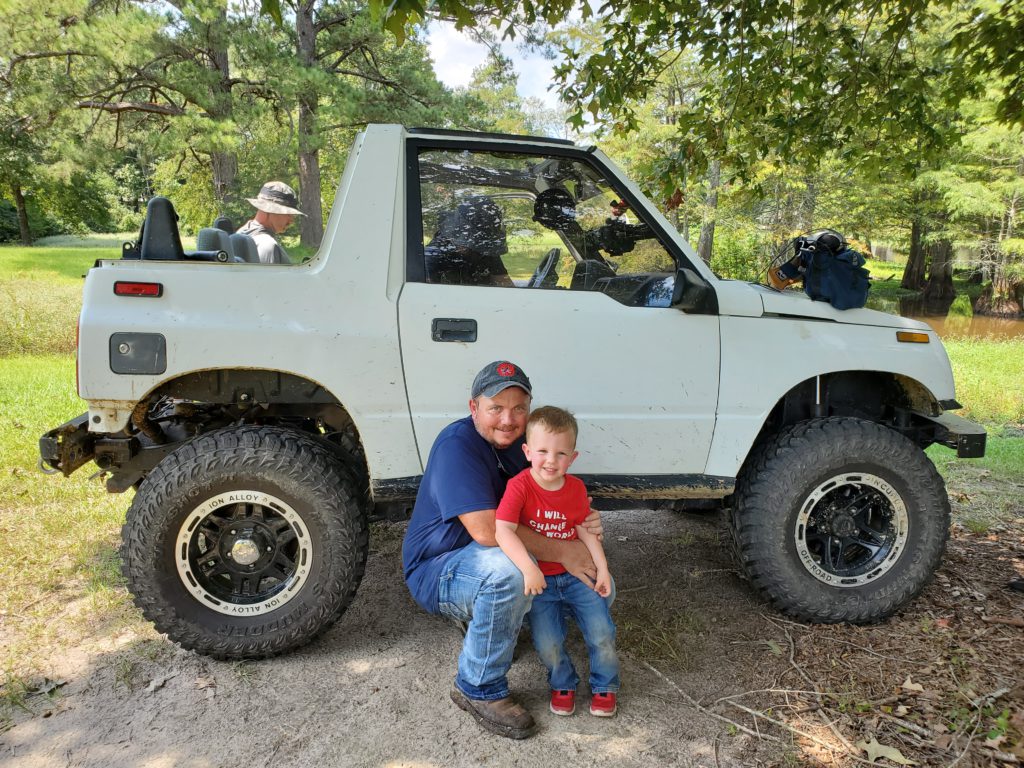
My daughter was 13 or 14 at the time. My sons were older. I had no clue what we were going to do. I had no clue how I was going to provide for my family. Luckily, being in the financial industry, I can work from anywhere as long as I have an internet connection and a phone.
Anyway, I had to go for a bone marrow biopsy and the doctor doing it said, “I’m going to give you a local anesthetic, and I’m going to drill a hole in your hip bone and open that enclosed cavity to air. I’m going to stick a needle in there and draw fluid out.”
He said, “The pain is going to be off the charts and there’s nothing we can do about it. The good news is it will be over really quick.” I was a little bit nervous. They’d already done one on me, but they knocked me out for that one.
He started talking to me and he said, “What do you do for a living?” “I’m a financial advisor. I’m a lot smarter than I look.” He started laughing, and we kind of hit it off.
Anyway, after it was all over with, I was getting dressed, pulling my pants up over this big diaper-sized bandage on my hip and he said, “Before you go, here’s my name and number. I want you to call me so we can discuss you being my financial advisor.”
At that very moment, my life changed. I had a peace wash over me that is really hard to explain. I knew it was God telling me everything was going to be all right.
I knew that he was telling me, “Hey, your business might even grow because of this. You don’t need to worry about taking care of your family.” I know a lot of people don’t understand this, but from that moment forward, I didn’t worry about whether I was going to live or die. I didn’t worry about providing for my family. I didn’t worry about the treatments.
I just didn’t worry. I had peace for probably the first time in my life. I changed at that very moment. I’ve actually shared the story with that doctor. He and I became friends. I think it had an impact on him, too. I found peace for the first time in my life.
I had somebody ask me one time, “When this is all said and done, what do you want to take away with it? What was important to you?” I wouldn’t change that peace for anything. Because I got that peace and because I’ve been through this, I’m a lot more thoughtful of others. I am so much more appreciative of my family and friends.
When I was going through treatments, my phone would start going off at 6:30 in the morning from people all over the country, just telling me that they love me. They were praying for me. They were wishing me the best. They were thinking about me.
I was in so much pain. I had so much damage to my body. I don’t care how sick you are, because that chemo was strong. It was so strong. I didn’t have a hair left on my body. I don’t care how sick you are. I don’t care how much you hurt.
It’s hard to have a bad day when you start your day off like that [with those messages]. I saw so many good things coming out of all of this that it encouraged me and it strengthened me. When you see good coming out of bad situations, it makes them not seem quite so bad.
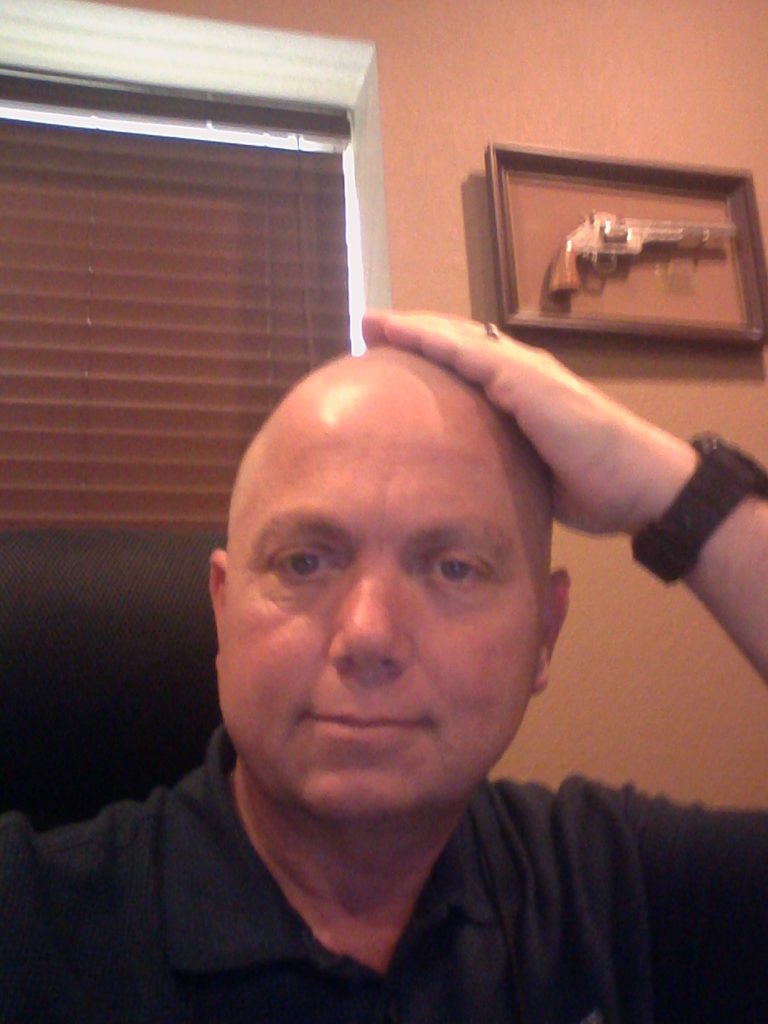
Damage to your body
Andrew, TPS: You said you did a lot to your body, so you’re probably not the same guy physically that you were before. How are you doing physically?
Alan: To understand what I mean by the damage to my body — I found out the reason I had been in so much pain was I had fractures in almost every vertebra. I had clusters of fractures, like spider webs, through my ribs on both sides. I had close to 150 lesions, holes on my bones from my thighs to my skull, and 60% of the cells in my bone marrow was cancerous.
I asked my doctor, “If I refuse treatments, how long do you think I have? He said, “Maybe 3 months.” I was right there at the end. They did the vertebroplasty on my L5. They did kyphoplasty on the vertebra between my shoulder blades.
The fractures were so bad they were afraid I would get pneumonia because I was breathing so shallowly. I could feel my vertebrae separating when I would take a breath. When I rolled over the bed or had to get up out of a chair, I had to hold my ribs or I had to keep them wrapped up to keep them from moving around.
That’s pretty uncomfortable. I had a lot of damage to my body. They did a really good job of patching me up, though. I’m in pain all the time — I can’t lie about that — but it’s tolerable.
Sometimes it wears me down, but I live a very normal life. I’m mowing a yard, doing things I didn’t feel like doing is what helped me recover. I actually started shooting archery tournaments again while I was still going through chemo. Right after they patched me up, I couldn’t shoot any of my bows.
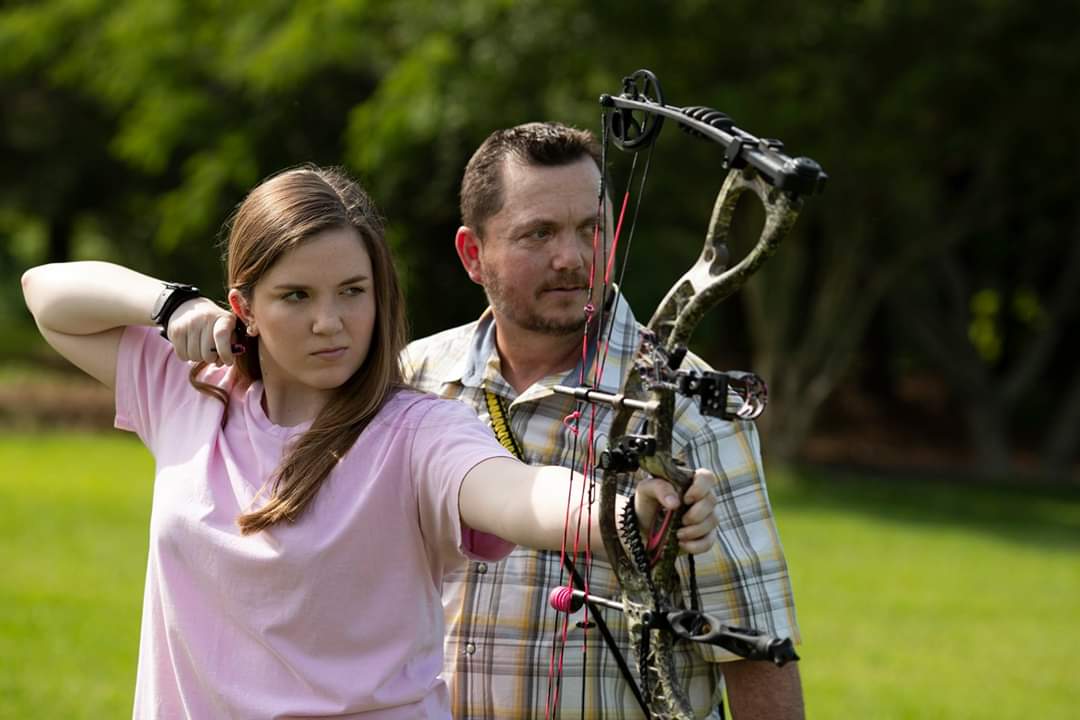
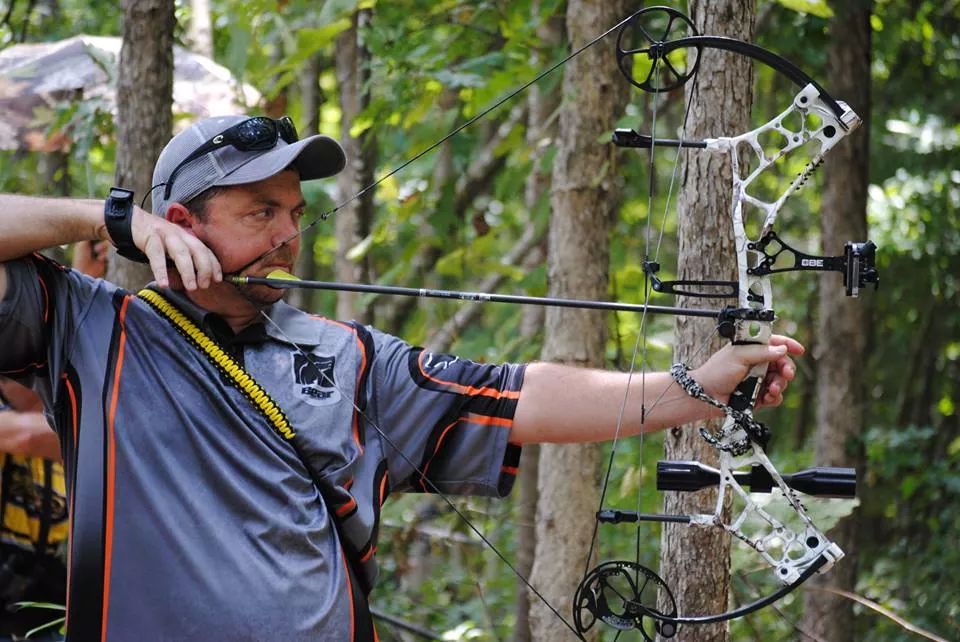
My daughter had one, and so I got it. I was used to shooting these super high-powered compound bows [that] throw arrows like lightning bolts. I was at the archery tournaments, shooting arrows that look like a rainbow. Once again, my archery friends took good care of me.
Andrew, TPS: Hunting and fishing — are you back to that?
Alan: Yeah. I’ve been working a little bit more than I probably should be. I’ve got about 5 acres of land. I keep that up and a few weeks ago, I was running a chainsaw. I went scuba diving last month.
Having a second life
Andrew, TPS: Did you ever think when you were lying there in the hospital that you would have this second life?
Alan: I didn’t know for certain that it would happen, but I knew if it didn’t happen, I’d go down swinging. I’ve got a lot of fight in me.
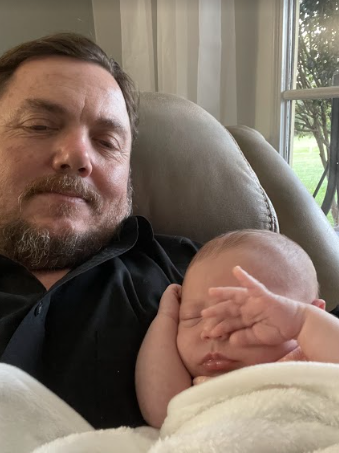
Andrew, TPS: You do. You mentioned about the businesses, but you also said you’ve become closer to your family. You’ve started some additional businesses with your boys, and it brought you closer to them.
Alan: In 2018, my oldest son and I and a friend of mine started a professional handyman and remodeling business. I’m just the business guy. We actually bought my partner out earlier this year, so it’s just me and my oldest son [who] have the handyman business.
Then in 2019, me and my youngest son partnered in his air conditioning business. Then in January of 2020, he and I bought an air conditioning duct cleaning business. I didn’t think I’d be working this hard at this age.
Faith for having life after cancer
Andrew, TPS: I imagine you now more relaxed than the person I envisioned before that. Maybe I’m right.
Alan: I am.
Andrew, TPS: It seems like you are. Let me ask you this. Monroe, Louisiana, is not a big place. I think if you stop people on the street and ask people, “If somebody’s diagnosed with cancer…?” The typical media thing has usually been, “That person’s going to die.”
For people who knew you, they knew you were a really sick puppy. But now you’re out and about, whether archery, hunting, fishing, doing business, working with your clients, working with your family. Do you feel that just you being there gives other people faith that there’s been progress in cancer and that there can be for not everyone, but for many people, life after cancer?
Alan: Without a doubt. I get a lot of people referred to me because, as you said, a lot of people haven’t heard about multiple myeloma. When I was diagnosed, I did not know anybody that had it.
I [now] get a lot of people referred to me from around the country through various friends and organizations. I always try to have this conversation with them to tell them what to expect and to give them hope.
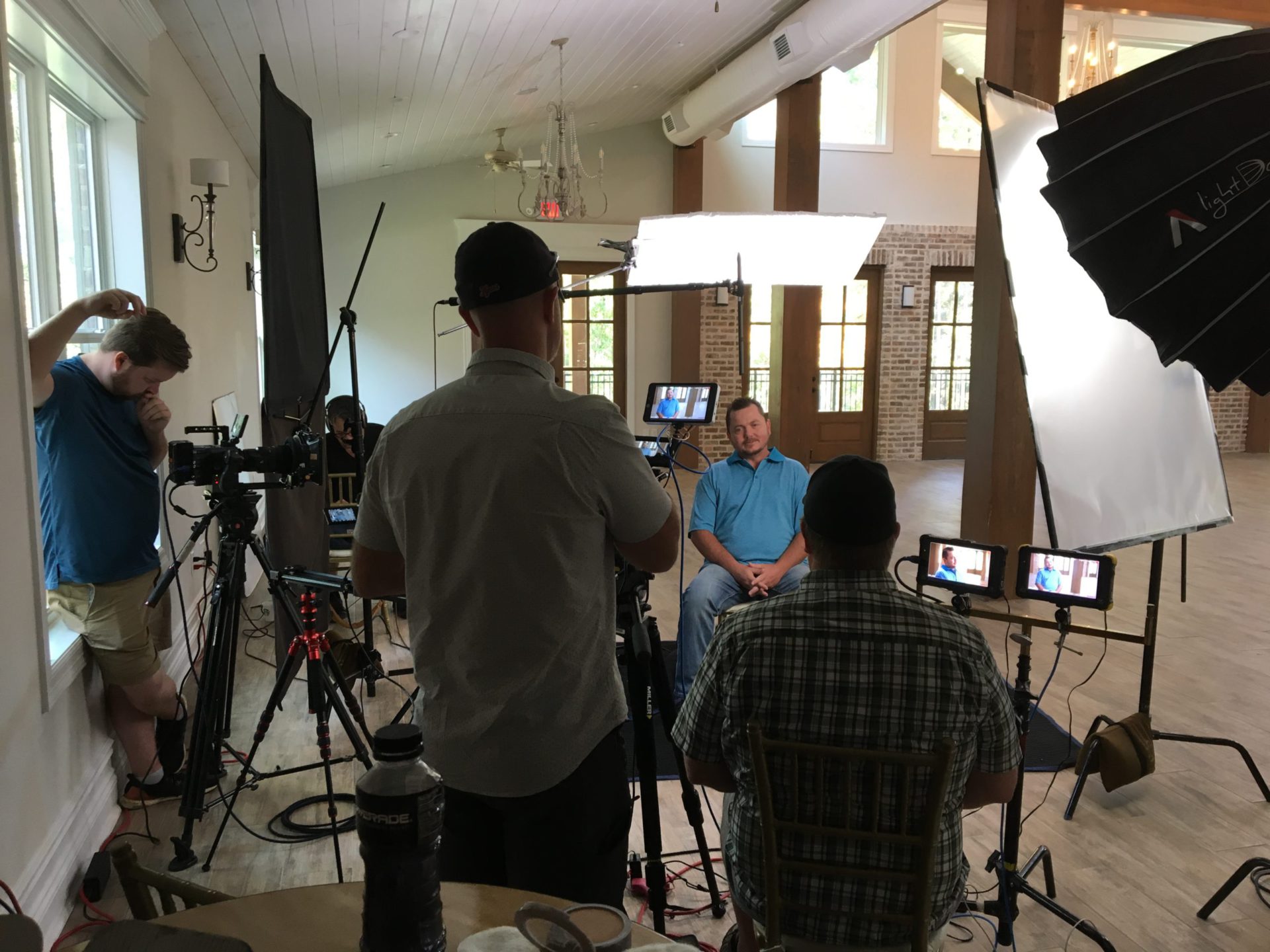
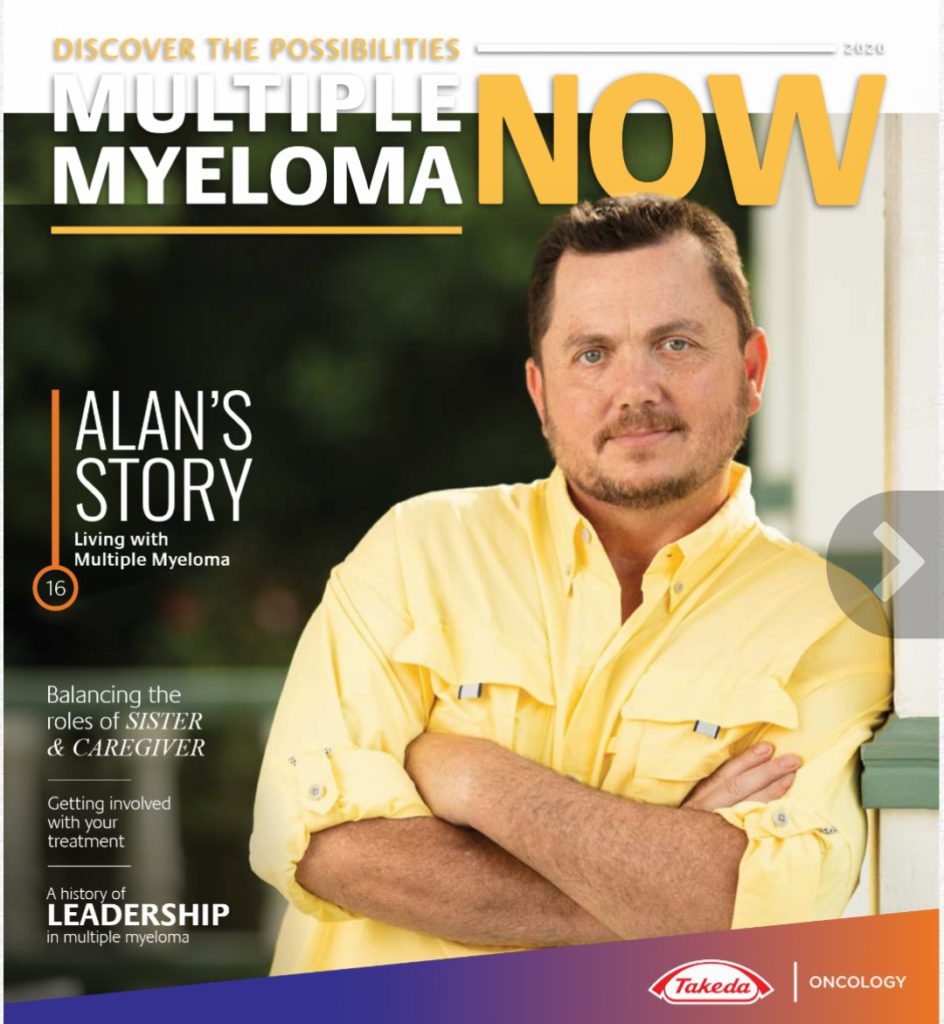
I’ll do some public speaking. I’ve been sent to some events and things, but the message that I try to give people and leave them with is that we have a conscious decision to make. It is our decision on how we’re going to deal with the tragedies and the difficulties that come along in our lives.
It might be health. It may be marriage. It might be whatever business. We have to make that conscious decision of who we’re going to be and how people are going to remember us, whether we die tomorrow or 30 years from now.
What is our legacy going to be? Was my family going to remember a guy that was angry or felt sorry for himself? Or was my family going to remember the guy that laughed when all of his hair fell out and half his mustache fell out, and the other side was still there like normal? That actually happened twice.
It’s changed me in many ways, and I try to help others any time I can.
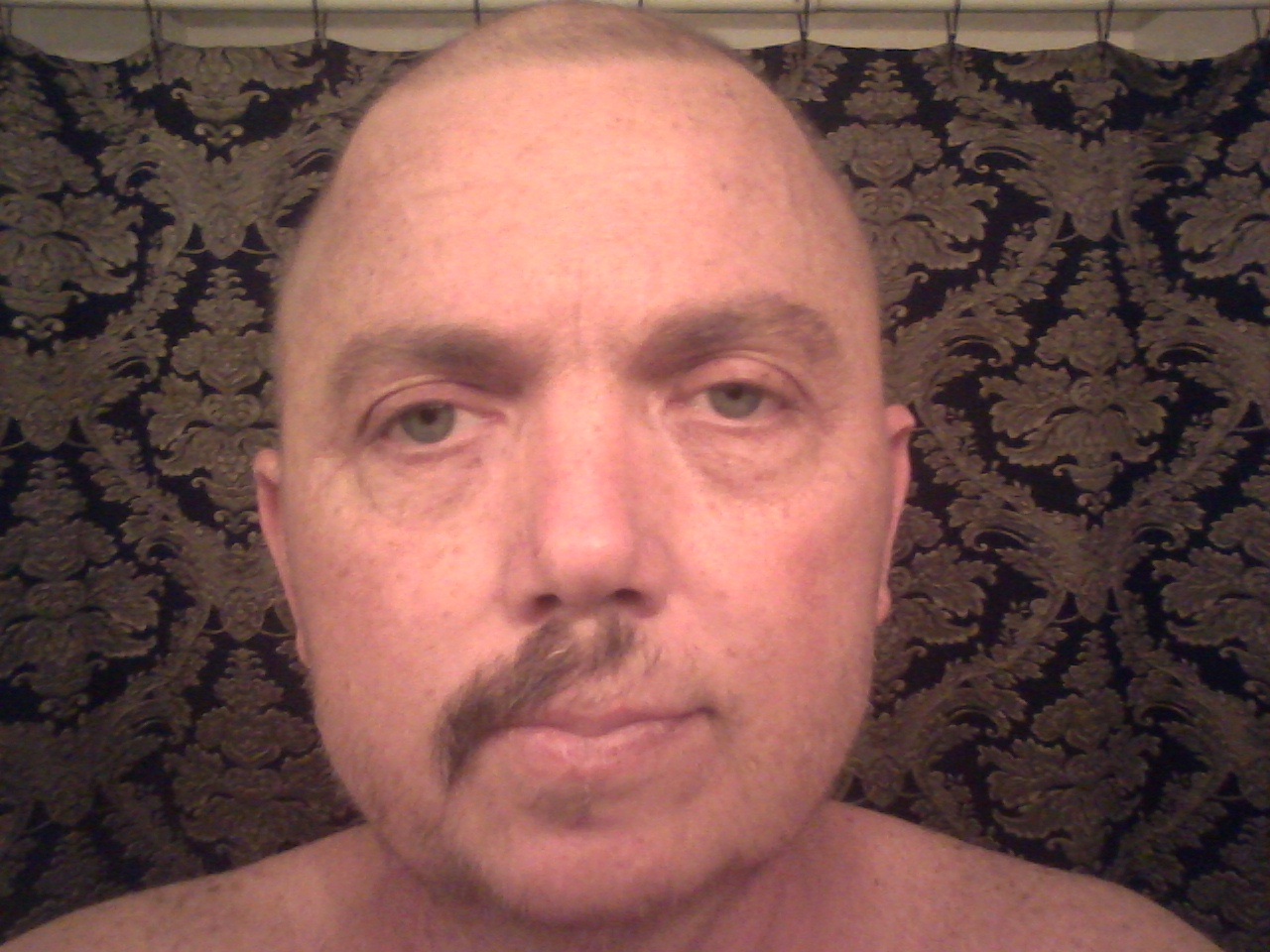
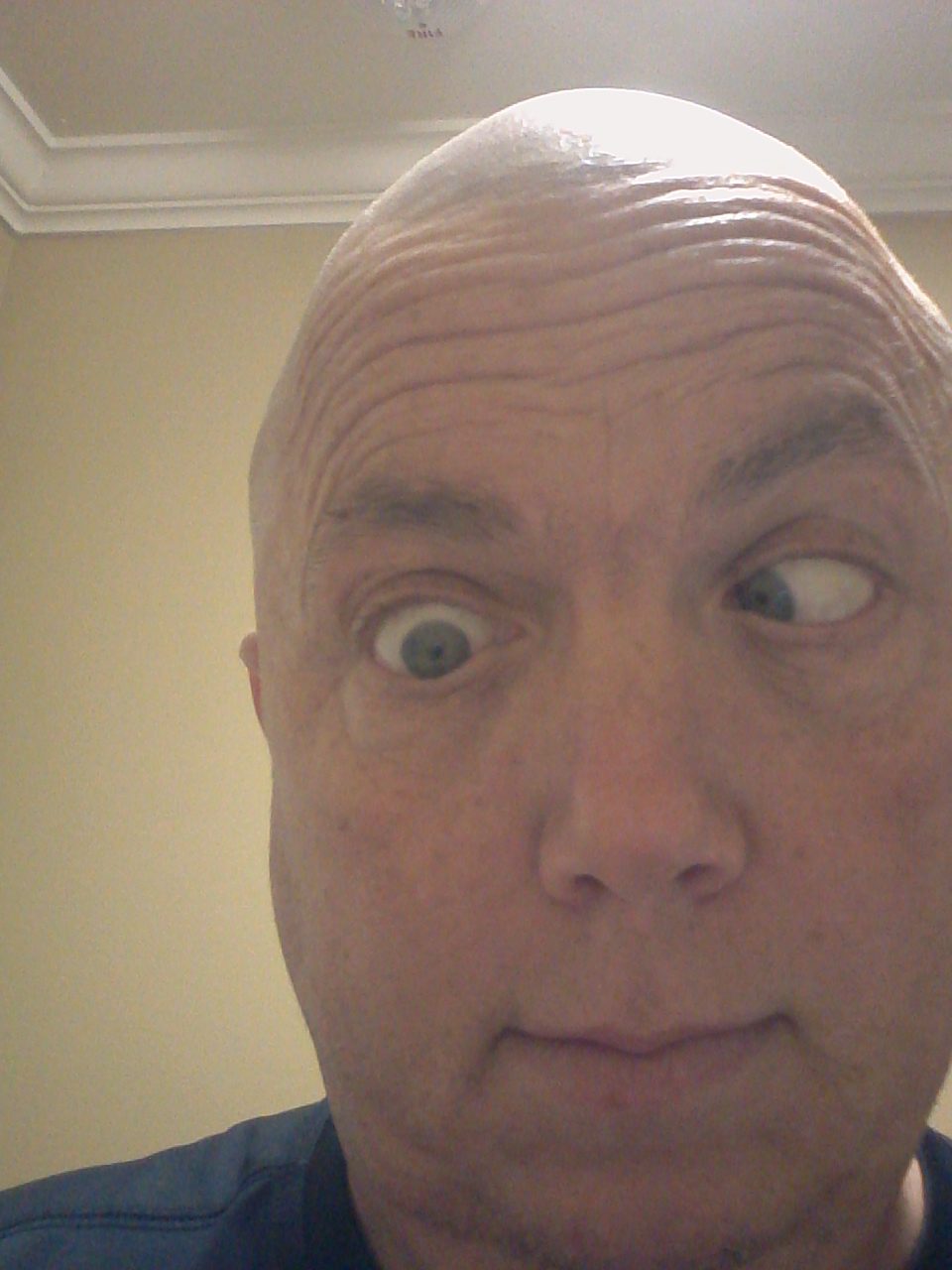
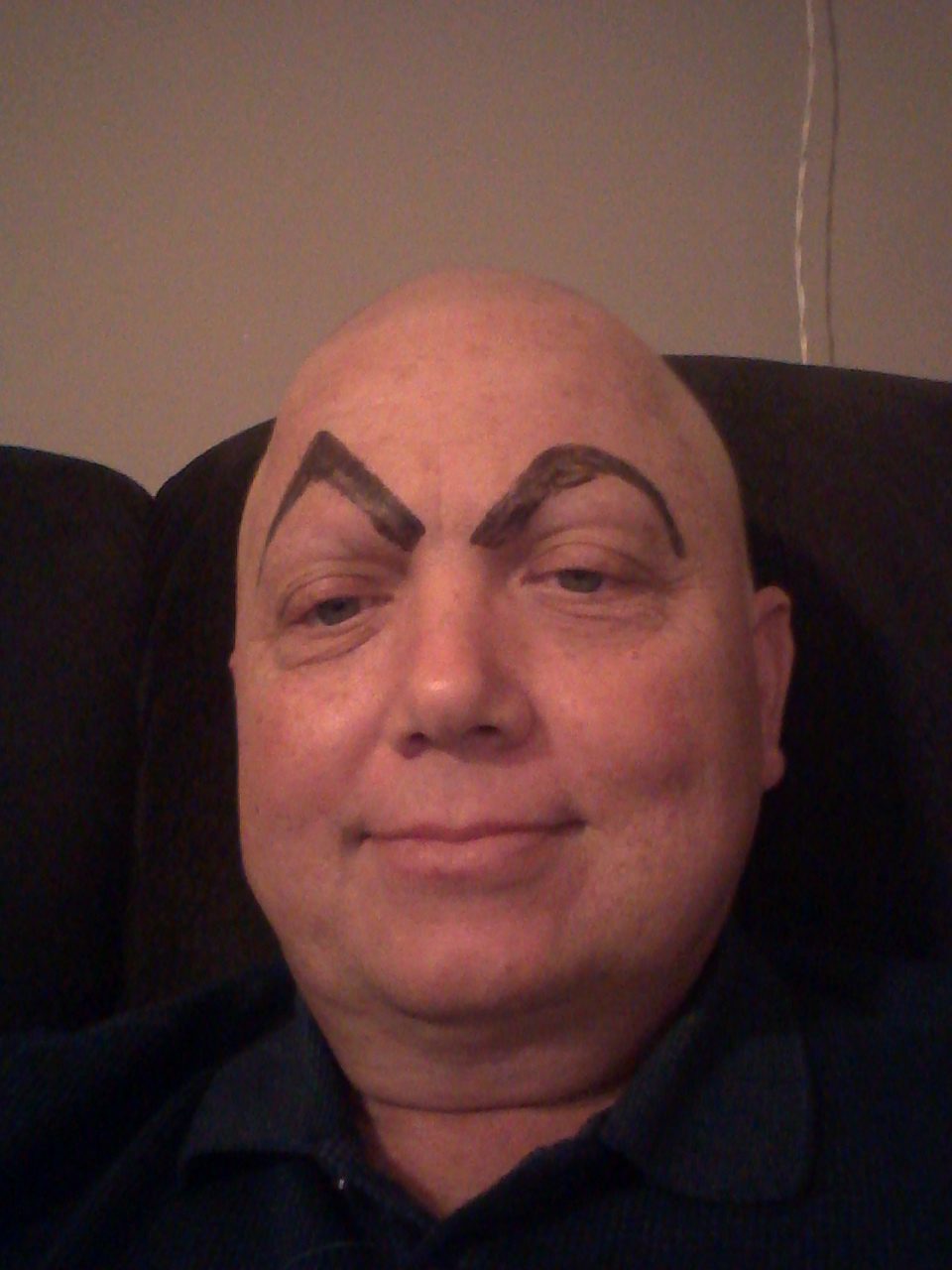
How do you view the future?
Andrew, TPS: You’ve had all this treatment. Right now, you’re not having any treatment. The medical team has kind of rebuilt your body. You still have the reminder with the pain, but you go on in a very positive way. How do you view the future?
Alan: I know the chances of multiple myeloma coming back are pretty high. I don’t think the good Lord is done with me yet. I’m just trying to do a little good while I’m here, whether it be a short time or a long time.
I’ve got a lot of young people around me that are just amazing that I try to mentor, and I love seeing them grow in business and then their confidence and their abilities. I try to help people that are fighting this multiple myeloma.
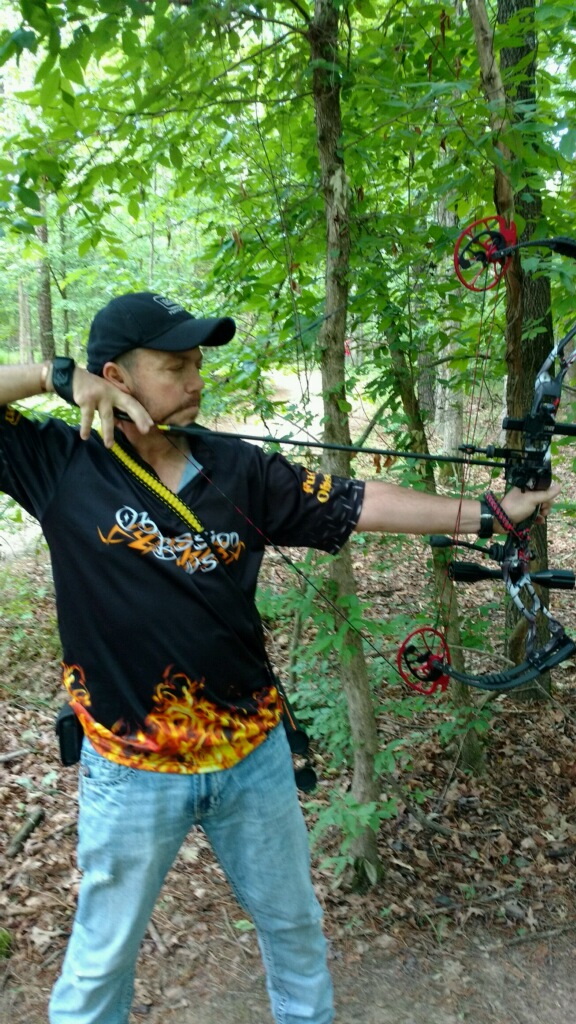
I don’t know what it’s like to have prostate cancer. I don’t know what it’s like to have breast cancer or lung cancer. I know what it’s like to have multiple myeloma, and that’s maybe 1% of all cancer diagnoses. I can help those people, and I want to in any way that I can.
I’m going to have some fun while I’m here. [I’ll] deal with the things that aren’t fun to the best of my ability. I’m a better husband. I’m a better father. I’m a better friend. I’m more spiritual. I’m Christian, and I’m closer to God than I’ve ever been.
At the end of the day, I wouldn’t change any of this, as hard as it’s been. Some days it’s easier to say that than others, but I wouldn’t change it. In many ways, [it’s] one of the best things that ever happened to me.
Conclusion
Andrew, TPS: That’s quite a statement. Alan, you’ve had this tremendous change. Medically, you’ve been through quite a valley, and you’ve come through that with the help of medical science. I think your faith as well, for sure, and the support of your family. You’re giving back. I want to thank you for visiting with us.
Thank you for being with us on our Cancer Friends program. Alan Stephenson, joining us from Louisiana, as we get to know someone in this case with multiple myeloma, but also with some inspiration and lessons for anybody who is affected by cancer. Thanks for joining us.
Alan: Thank you for having me.

Inspired by Alan's story?
Share your story, too!
